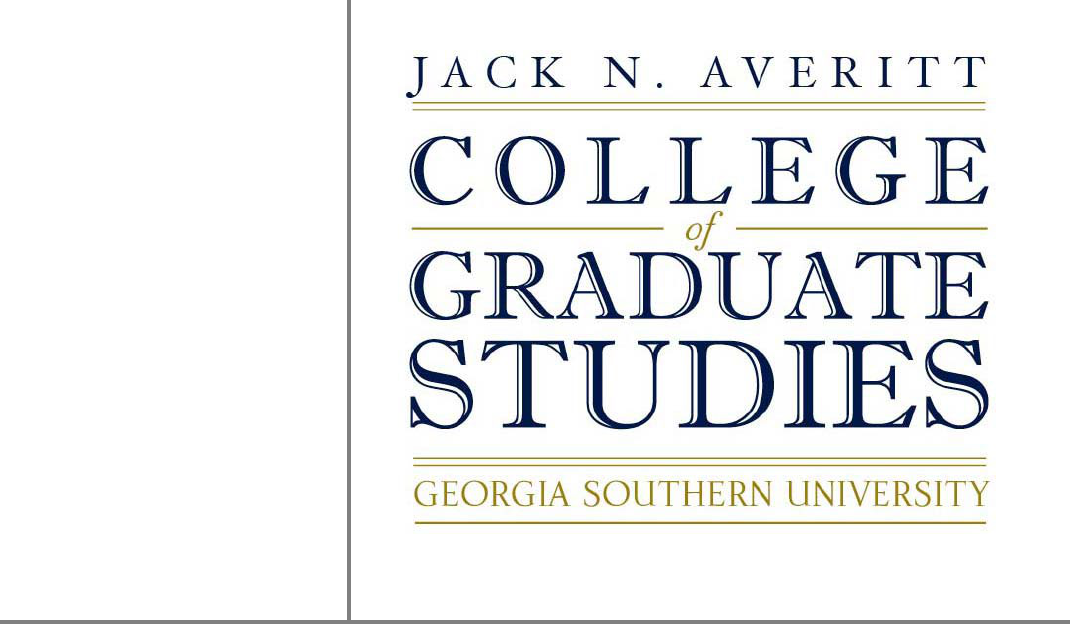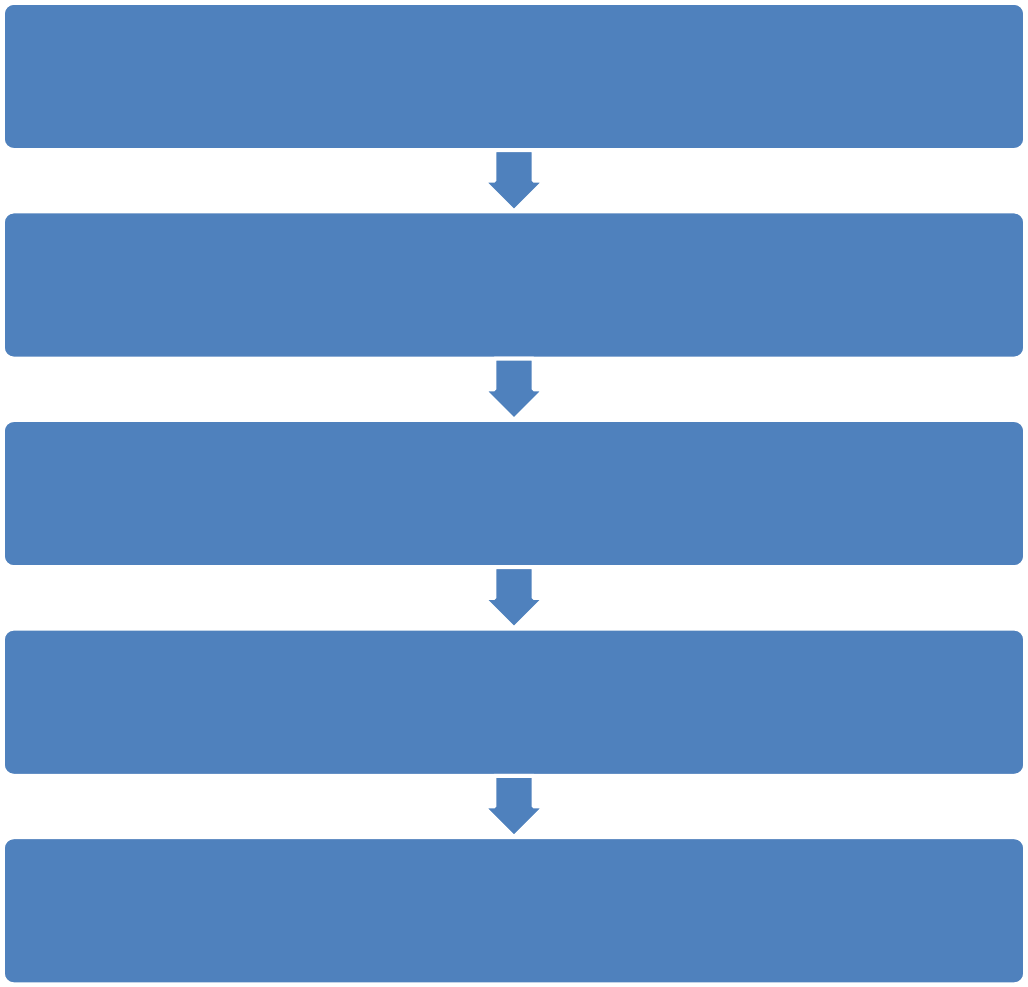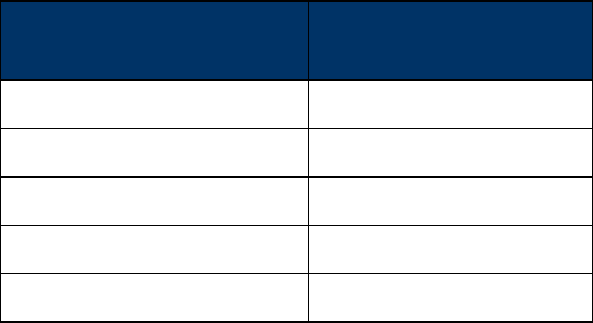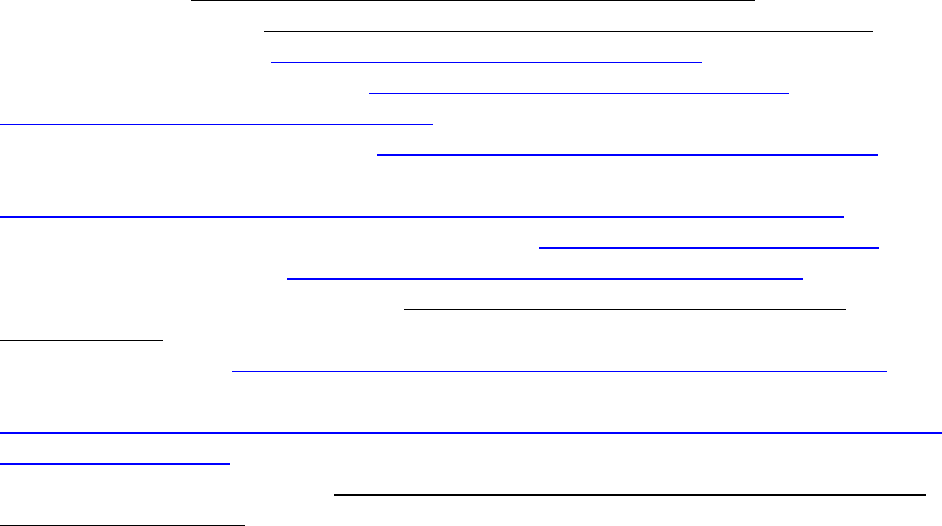
Handbook
for
Program
Directors
and
Graduate
Advisors
2022-2023

2 | Page
Jack N. Averitt College of Graduate Studies
Staff
Room
Phone
Email
Dr. Ashley Walker
Dean, College of Graduate Studies
1012B
Veazey Hall
912-478-1710
Dr. Checo Colón-Gaud
Associate Dean
1013B
Veazey Hall
912-478-8695
jccolongaud@georgiasouthern.edu
Audie Graham
Executive Assistant II
1012
Veazey Hall
912-478-0851
Mary Jernigan
Graduate Coordinator
1013C
Veazey Hall
912-478-8612
Wendy Sikora
Graduate Coordinator
1013A
Veazey Hall
912-478-1756
Sara Emily Ridgway-Jones
Graduate Coordinator
1000F
Veazey Hall
912-478-5678
sridgway@georgiasouthern.edu
Megan Murray
Graduate Coordinator
1012A
Veazey Hall
912-478-2302
Caroline James
Graduate Coordinator
1014C
Veazey Hall
912-478-5680
Kelli Aikens
Graduate Coordinator
201
Armstrong Center
912-478-0913
kaikens@georgiasouthern.edu
Kerrin Allen
Graduate Coordinator
1014A
Veazey Hall
912-478-7579
keallen@georgiasouthern.edu
Graduate Student Organization:
Faculty Advisor - Statesboro
Campus: Dr. Thresa Yancey
Faculty Advisor - Armstrong
Campus: Dr. Aaron Schrey
Brannen Hall, 2030
Science Center, 1010
912-478-5704
912-344-2646
gso@georgiasouthern.edu
tyancey@georgiasouthern.edu
3 | Page
Contents
LIST OF TABLES ....................................................................................................................................................................... 9
LIST OF FIGURES ................................................................................................................................................................... 10
SECTION 1 - VISION AND MISSION ....................................................................................................................................... 11
VISION ...................................................................................................................................................................................... 11
MISSION ................................................................................................................................................................................... 11
SECTION 2 - HISTORY OF THE JACK N. AVERITT COLLEGE OF GRADUATE STUDIES ................................................................ 12
THE COLLEGE OF GRADUATE STUDIES ..................................................................................................................................... 12
DEAN CHRONOLOGY ................................................................................................................................................................ 12
SECTION 3 - APPOINTMENT AND ROLE OF THE GRADUATE PROGRAM DIRECTOR ............................................................... 13
KEY ROLES FOR THE GRADUATE PROGRAM DIRECTOR/COORDINATOR .................................................................................. 13
SECTION 4 - GRADUATE ADMISSIONS .................................................................................................................................. 14
APPLICATION DEADLINES ......................................................................................................................................................... 14
APPLICATION FOR ADMISSION................................................................................................................................................. 14
U.S. CITIZENS AND PERMANENT RESIDENTS ............................................................................................................................ 15
ADDITIONAL MATERIALS DUE PRIOR TO ENROLLMENT ........................................................................................................... 15
IMMUNIZATION DOCUMENTATION ........................................................................................................................................ 15
VERIFIED LAWFUL PRESENCE ................................................................................................................................................... 16
ADMISSION TEST SCORES ......................................................................................................................................................... 16
ADMISSION TEST SCORE WAIVER ............................................................................................................................................. 17
Test Score Reliability ............................................................................................................................................................ 17
TRANSCRIPTS AND ADMISSION GRADE POINT AVERAGES ....................................................................................................... 17
NON-DEGREE GRADUATE CREDIT TO RAISE ADMISSION GRADE POINT AVERAGE .................................................................. 18
INTERNATIONAL APPLICANTS .................................................................................................................................................. 18
Professional Credential Evaluation Requirement for Graduate Applicants ......................................................................... 19
TOEFL (Test of English as a Foreign Language) or IELTS (International English Language Testing System) ....................... 19
International Students with Assistantships ......................................................................................................................... 19
Additional materials required to be issued an I-20 SEVIS Data Form (Financial Statement Form) ..................................... 19
ADMISSION CLASSIFICATION ................................................................................................................................................... 19
ADMISSION TO PURSUE TWO GRADUATE DEGREES CONCURRENTLY ..................................................................................... 22
ADMISSION TERM .................................................................................................................................................................... 23
READMISSION-GRADUATE STUDENT POLICY ........................................................................................................................... 23
To Return within Three (3) Semesters.................................................................................................................................. 23
To Return Beyond Three or More Semesters ....................................................................................................................... 23
ADMISSION CHANGES FOR CURRENTLY ENROLLED STUDENTS ............................................................................................... 24
To Change Classification or Apply to a Different Degree Program ...................................................................................... 24
To Change Major or Concentration in Same Degree Program After Admission .................................................................. 24
DEGREE OBJECTIVE CHANGE .................................................................................................................................................... 24
TECHNOLUTIONS SLATE CRM ................................................................................................................................................... 25
TECHNOLUTIONS SLATE APPLICATIONS ................................................................................................................................... 25
SECTION 5 - MATRICULATION, REGISTRATION, AND RECORDS ............................................................................................ 25
REGISTRATION ......................................................................................................................................................................... 25
4 | Page
REGISTRATION ACCESS NUMBER (RAN) ................................................................................................................................... 26
LATE REGISTRATION ................................................................................................................................................................. 26
REGISTRATION HOLDS ............................................................................................................................................................. 26
TUITION AND FEES ................................................................................................................................................................... 26
LATE FEES ................................................................................................................................................................................. 26
COURSE LOADS ........................................................................................................................................................................ 26
FULL-TIME AND PART-TIME ENROLLMENT .............................................................................................................................. 27
CREDIT HOUR OVERLOADS ...................................................................................................................................................... 28
SCHEDULE ADJUSTMENTS........................................................................................................................................................ 28
DROP AND ADD ........................................................................................................................................................................ 28
FAILURE TO OFFICIALLY DROP A COURSE ................................................................................................................................. 28
WITHDRAWAL FROM SCHOOL ................................................................................................................................................. 28
ENROLLMENT OF UNDERGRADUATE STUDENTS IN GRADUATE COURSES (SENIOR PRIVILEGE) .............................................. 29
SECTION 6 - GRADES ............................................................................................................................................................ 29
INCOMPLETE (I) ........................................................................................................................................................................ 29
IN PROGRESS (IP) ...................................................................................................................................................................... 29
SATISFACTORY/UNSATISFACTORY GRADES (S AND U) ............................................................................................................. 29
CHANGE OF GRADE .................................................................................................................................................................. 29
CHANGE OF AN ASSIGNED GRADE ........................................................................................................................................... 30
CHANGE OF AN INCOMPLETE (I) .............................................................................................................................................. 30
CHANGE OF AN IN PROGRESS (IP) ............................................................................................................................................ 30
SECTION 7 - STUDENT SOCIAL SECURITY NUMBER ............................................................................................................... 30
SECTION 8 - TRANSFER OR TRANSIENT CREDIT ..................................................................................................................... 30
TRANSFER CREDIT .................................................................................................................................................................... 31
Doctor of Education (Ed.D.) ................................................................................................................................................. 31
Doctor of Nursing Practice (D.N.P.) ..................................................................................................................................... 31
Doctor of Physical Therapy (D.P.T.) ..................................................................................................................................... 32
Doctor of Psychology (Psy.D.) .............................................................................................................................................. 32
Doctor of Public Health (Dr.P.H.) ......................................................................................................................................... 32
Doctor of Philosophy (Ph.D. - Logistics and Supply Chain Management) ............................................................................ 32
TRANSIENT STUDENT PERMISSION FORM (LETTER OF GOOD STANDING) ............................................................................... 32
SECTION 9 - RESIDENT CLASSIFICATION ............................................................................................................................... 32
RESIDENCE STATUS FOR THE PURPOSE OF PAYING IN-STATE FEES .......................................................................................... 33
RESIDENCY STATUS DETERMINED AT THE TIME OF APPLICATION ........................................................................................... 33
SECTION 10 - ACADEMIC RESIDENCY REQUIREMENT ........................................................................................................... 34
Master’s and Education Specialist Degrees ......................................................................................................................... 34
Doctor of Education (Ed.D.) ................................................................................................................................................. 34
Doctor of Nursing Practice (D.N.P.) ..................................................................................................................................... 34
Doctor of Physical Therapy (D.P.T.) ..................................................................................................................................... 34
Doctor of Psychology (Psy.D.) .............................................................................................................................................. 34
Doctor of Public Health (Dr.P.H.) ......................................................................................................................................... 34
SECTION 11 - DEGREE TIME LIMITS ...................................................................................................................................... 34
Master’s and Education Specialist Degrees ......................................................................................................................... 34
5 | Page
Doctor of Education (Ed.D.) ................................................................................................................................................. 35
Doctor of Nursing Practice (D.N.P.) ..................................................................................................................................... 35
Doctor of Physical Therapy (D.P.T.) ..................................................................................................................................... 35
Doctor of Psychology (Psy.D.) .............................................................................................................................................. 35
Doctor of Public Health (Dr.P.H.) ......................................................................................................................................... 35
Doctor of Philosophy (Ph.D. - Logistics and Supply Chain Management) ............................................................................ 35
SECTION 12 - DEGREE COMPLETION REQUIREMENTS .......................................................................................................... 35
MASTER’S DEGREE ................................................................................................................................................................... 35
EDUCATION SPECIALIST (ED.S.) DEGREE ................................................................................................................................... 36
DOCTORAL DEGREE .................................................................................................................................................................. 36
TIME EXTENSION FOR DEGREE COMPLETION .......................................................................................................................... 36
SECTION 13 - FINANCIAL AID SATISFACTORY ACADEMIC PROGRESS POLICY ........................................................................ 36
CERTIFICATE PROGRAM FINANCIAL AID ELIGIBILITY: ............................................................................................................... 37
SECTION 14 - MATRICULATION CHECKLISTS ......................................................................................................................... 38
DEGREE WORKS (PROGRAMS OF STUDY) ................................................................................................................................. 38
MASTER’S DEGREE ................................................................................................................................................................... 38
EDUCATION SPECIALIST (ED.S.) DEGREE .................................................................................................................................. 39
DOCTORAL DEGREES ................................................................................................................................................................ 39
Doctor of Education (Ed.D.) ................................................................................................................................................. 40
Doctor of Nursing Practice (D.N.P.) ..................................................................................................................................... 40
Doctor of Nursing (B.S.N.-D.N.P) ......................................................................................................................................... 40
Doctor of Physical Therapy (D.P.T.) ..................................................................................................................................... 40
Doctor of Psychology (Psy.D.) .............................................................................................................................................. 40
Doctor of Public Health (Dr.P.H.) ......................................................................................................................................... 40
Doctor of Philosophy (Ph.D. - Logistics and Supply Chain Management) ............................................................................ 40
Course Challenge ................................................................................................................................................................. 40
SECTION 15 - LEAVE OF ABSENCE ......................................................................................................................................... 40
NON-MEDICAL LEAVE OF ABSENCE .......................................................................................................................................... 40
MEDICAL LEAVE OF ABSENCE ................................................................................................................................................... 41
SECTION 16 - CANDIDACY EXAM, COMPREHENSIVE EXAMINATION, QUALIFYING EXAMINATION, ESSENTIALS
EXAMINATION ..................................................................................................................................................................... 41
DOCTORAL PROGRAMS ............................................................................................................................................................ 41
Doctor of Education (Ed.D.) ................................................................................................................................................. 41
Doctor of Nursing Practice (D.N.P.) ..................................................................................................................................... 41
Doctor of Psychology (Psy.D.) .............................................................................................................................................. 41
Doctor of Public Health (Dr.P.H.) ......................................................................................................................................... 41
Doctor of Philosophy (Ph.D. – Logistics and Supply Chain Management) ........................................................................... 42
MASTERS PROGRAMS .............................................................................................................................................................. 42
SECTION 17 - ADMISSION TO CANDIDACY ............................................................................................................................ 43
Doctor of Education (Ed.D. – Educational Leadership) ........................................................................................................ 43
Doctor of Education (Ed.D. – Curriculum Studies) ............................................................................................................... 43
Doctor of Nursing Practice (D.N.P.) ..................................................................................................................................... 44
Doctor of Psychology (Psy.D.) ............................................................................................................................................. 44
6 | Page
Doctor of Public Health (Dr.P.H.) ......................................................................................................................................... 44
Doctor of Philosophy (Ph.D.) – Logistics and Supply chain Management ........................................................................... 44
SECTION 18 - MASTER’S THESIS COMMITTEE ....................................................................................................................... 44
MASTER’S COMMITTEE COMPOSITION ................................................................................................................................... 44
ADJUNCT FACULTY STATUS ...................................................................................................................................................... 45
THESIS COMMITTEE CO-CHAIRS ............................................................................................................................................... 46
ADVISING MEMBERS OF IMMEDIATE FAMILY .......................................................................................................................... 46
NON-AFFILIATED PERSONS ON THESIS COMMITTEES .............................................................................................................. 46
FORMER GEORGIA SOUTHERN GRADUATE FACULTY ............................................................................................................... 47
EMERITUS FACULTY ................................................................................................................................................................. 47
SECTION 19 - DISSERTATION COMMITTEE ............................................................................................................................ 47
DISSERTATION COMMITTEE COMPOSITION ............................................................................................................................ 47
EXTERNAL COMMITTEE MEMBERSHIP..................................................................................................................................... 48
ADJUNCT FACULTY STATUS ...................................................................................................................................................... 48
DISSERTATION COMMITTEE CO-CHAIRS .................................................................................................................................. 49
ADVISING MEMBERS OF IMMEDIATE FAMILY .......................................................................................................................... 49
NON-AFFILIATED PERSONS ON DISSERTATION COMMITTEES ................................................................................................. 49
FORMER GEORGIA SOUTHERN GRADUATE FACULTY ............................................................................................................... 50
EMERITUS FACULTY ................................................................................................................................................................. 50
SECTION 20 - ELECTRONIC THESES AND DISSERTATIONS (ETD’S) .......................................................................................... 50
ETD FINAL SUBMISSION APPROVAL ......................................................................................................................................... 50
THESES ..................................................................................................................................................................................... 50
Thesis Preparation ............................................................................................................................................................... 50
Theses Styles ........................................................................................................................................................................ 51
Thesis Defense ..................................................................................................................................................................... 52
Thesis Defense Approval ...................................................................................................................................................... 52
Thesis Submission ................................................................................................................................................................ 52
DISSERTATION .......................................................................................................................................................................... 53
Dissertation Styles ............................................................................................................................................................... 53
Dissertation Defense ............................................................................................................................................................ 54
Dissertation Defense Approval ............................................................................................................................................ 54
Dissertation Submission....................................................................................................................................................... 54
SECTION 21 - GRADUATION ................................................................................................................................................. 54
GRADUATION CHECKLIST ......................................................................................................................................................... 55
Master’s and Educational Specialist Candidates ................................................................................................................. 55
Doctoral Candidates ............................................................................................................................................................ 56
DEADLINE TO SUBMIT APPLICATION FOR GRADUATION ......................................................................................................... 56
Spring or Summer Candidate Application Deadline ............................................................................................................. 56
Fall Candidates Application Deadline .................................................................................................................................. 57
CHANGE IN GRADUATION SEMESTER ...................................................................................................................................... 57
GRADUATION CLEARANCE ....................................................................................................................................................... 57
SECTION 22 - DISCIPLINARY ACTIONS AND APPEALS ............................................................................................................ 58
ALLEGED VIOLATIONS OF UNIVERSITY CONDUCT REGULATIONS ............................................................................................ 58
ACADEMIC APPEALS POLICY (GRADUATE STUDENTS) .............................................................................................................. 58
7 | Page
Academic Appeal Procedures .............................................................................................................................................. 59
Student Appeal Steps ........................................................................................................................................................... 60
EXCLUSION ............................................................................................................................................................................... 62
ACADEMIC PROBATION ........................................................................................................................................................... 63
REMOVAL FROM ACADEMIC PROBATION ................................................................................................................................ 63
REINSTATEMENT APPEAL ......................................................................................................................................................... 63
GRADES OF “C” OR BELOW....................................................................................................................................................... 63
SECTION 23 - PETITION TO REVIEW/CHANGE OF GRADE ...................................................................................................... 64
SECTION 24 - FINANCIAL SUPPORT FOR GRADUATE STUDENTS ........................................................................................... 66
GRADUATE ASSISTANTSHIP APPLICATION ............................................................................................................................... 66
GRADUATE ASSISTANT DEFINITION ......................................................................................................................................... 66
DOCTORAL FELLOWSHIPS (ASSISTANTSHIP) ................................................................................................................................. 68
ASSISTANTSHIP ELIGIBILITY ...................................................................................................................................................... 68
GRADUATE ASSISTANT RESPONSIBILITIES ................................................................................................................................ 69
GRADUATE ASSISTANT STIPEND .............................................................................................................................................. 69
GRADUATE ASSISTANT TUITION WAIVER ................................................................................................................................. 70
GRADUATE ASSISTANT HEALTH INSURANCE REQUIREMENT ................................................................................................... 70
GRADUATE ASSISTANT APPOINTMENT DURATION ................................................................................................................. 70
INTERNATIONAL STUDENTS WITH ASSISTANTSHIPS ................................................................................................................ 70
ASSISTANTSHIPS FOR FULLY-ONLINE STUDENTS...................................................................................................................... 70
GRADUATE ASSISTANT CONDITION OF SERVICE ...................................................................................................................... 71
TEACHING ASSISTANT PARKING PRIVILEGES ............................................................................................................................ 71
GRADUATE ASSISTANT EVALUATION ....................................................................................................................................... 72
GRADUATE ASSISTANTSHIP INELIGIBILITY OR TERMINATION .................................................................................................. 72
GRADUATE ASSISTANT RIGHTS ................................................................................................................................................ 72
SUMMER ASSISTANTSHIPS....................................................................................................................................................... 73
POLICIES ON GRADUATE ASSISTANTSHIPS ............................................................................................................................... 73
SECTION 25 - WORKLOADS, COURSE LOADS, AND COMPENSATION FOR GRADUATE STUDENTS ......................................... 73
ANNUAL STIPEND RATES .......................................................................................................................................................... 74
STUDENT HOURLY EMPLOYEES ................................................................................................................................................ 74
TUITION WAIVERS .................................................................................................................................................................... 74
TUITION WAIVERS ON SPONSORED PROGRAMS ..................................................................................................................... 74
FINANCIAL AID AND VETERANS' BENEFITS ............................................................................................................................... 74
WORK STUDY ........................................................................................................................................................................... 75
MANDATORY INSURANCE FOR GRADUATE ASSISTANTS .......................................................................................................... 75
SECTION 26 - STUDENT RESEARCH AND TRAVEL GRANTS..................................................................................................... 75
GRADUATE STUDENT PROFESSIONAL DEVELOPMENT FUND .................................................................................................. 75
SECTION 27 - BORDER COUNTY FEE WAIVERS ...................................................................................................................... 75
SECTION 28 - INTERNATIONAL DIVERSITY SCHOLARSHIPS (OUT-OF-COUNTRY TUITION WAIVERS)...................................... 75
CRITERIA FOR AWARDING INTERNATIONAL DIVERSITY SCHOLARSHIPS .................................................................................. 76
SECTION 29 - OFF-CAMPUS PROGRAMMING ....................................................................................................................... 76
OFF-CAMPUS PROGRAMS ........................................................................................................................................................ 76
OFF-CAMPUS DEFINITIONS ...................................................................................................................................................... 76
8 | Page
SCHEDULING OF OFF-CAMPUS COURSES ................................................................................................................................. 77
STUDENT ADMISSION .............................................................................................................................................................. 77
RESIDENT CREDIT ..................................................................................................................................................................... 77
OFF-CAMPUS COURSE GRADING ............................................................................................................................................. 77
SECTION 30 - ONLINE PROGRAMMING ................................................................................................................................ 77
ONLINE PROGRAMS ................................................................................................................................................................. 77
GEORGIA ON MY LINE PROGRAMS (GOML) ............................................................................................................................. 77
SECTION 31 – STUDENT NAME AND ADDRESS CHANGES ..................................................................................................... 78
NAME CHANGE FOR FORMER GEORGIA SOUTHERN UNIVERSITY STUDENTS .......................................................................... 78
NAME CHANGE FOR NEW GEORGIA SOUTHERN UNIVERSITY STUDENTS AND ADDRESS CHANGE .......................................... 78
SECTION 32 - PURGING OF RECORDS ................................................................................................................................... 78
SECTION 33 - ACADEMIC COMMON MARKET ....................................................................................................................... 78
OPERATIONS ............................................................................................................................................................................ 78
UPDATING PROGRAM OFFERINGS ........................................................................................................................................... 79
PROGRAM ADMISSION ............................................................................................................................................................ 79
APPENDIX LIST ..................................................................................................................................................................... 80

9 | Page
LIST OF TABLES
Table 1: Maximum Credit Hour Course Load Per Semester ....................................................................................... 27
Table 2: Graduate Student Full-Time/Part-Time Credit Hour Enrollment by Term ................................................... 27
Table 3: Doctoral Programs - Maximum Transfer Credits .......................................................................................... 31
Table 4: Certificate Programs Eligible for Financial Aid .............................................................................................. 37
Table 5: Master's Programs Requiring Completion of a Comprehensive Examination .............................................. 42
Table 6: Summer Graduate Assistantship Credit Hour Requirements ....................................................................... 73

10 | Page
LIST OF FIGURES
Figure 1 Student Web Appeal Submission Process .................................................................................................... 62
11 | Page
SECTION 1 - VISION AND MISSION
VISION
The vision for graduate education at Georgia Southern University is to provide a learning environment which
fosters creative thinking in the minds of our students and to produce graduates who improve and enrich society.
To support this effort, the University will make it a priority to recruit, support, and retain faculty who are
committed to creating and maintaining effective graduate programs. As stated in Georgia Southern’s mission.
Our programs provide “a learner-centered culture that prepares you to think, lead, teach and serve.”
Our academic distinction arises from the integrity and quality of our programs. A graduate degree from Georgia
Southern is a valued statement of this distinction, and such degrees are earned only by those individuals who
have achieved the standards of this community of learners.
MISSION
The mission of the Jack N. Averitt College of Graduate Studies is to develop, nurture, promote and sustain
graduate programs of the highest quality at Georgia Southern University. The College of Graduate Studies seeks
to support graduate students and graduate programs at the highest level, to provide a foundation for university
graduate program growth and development, and to support excellence in graduate education, and the research
and scholarly activities associated with it.
12 | Page
SECTION 2 - HISTORY OF THE JACK N. AVERITT COLLEGE OF GRADUATE STUDIES
Georgia Southern University, founded in 1906, is the largest and leading center of higher education in the
southern half of Georgia. The university’s student population of approximately 26,400 includes 12% graduate
students representing almost every state and more than 102 nations. The College of Graduate Studies was
established at Georgia Southern University in 1969.
THE COLLEGE OF GRADUATE STUDIES
The evolution of the College of Graduate Studies is a story of vision, challenge, persistence, and hope. In 1958,
the Board of Regents authorized the first graduate degree, the Master of Education (M.Ed.) to be offered at
Georgia Southern College. In 1969, the President of Georgia Southern University, Dr. Edison, established the
Graduate School under the leadership of Dr. Jack N. Averitt. In 1998, in honor of his many contributions to the
development of graduate studies at the University, the College was named the Jack N. Averitt College of Graduate
Studies. Over the years, the College of Graduate Studies has undergone many changes and transformations.
DEAN CHRONOLOGY
1969 - 1979 Dr. Jack N. Averitt, Dean of the Graduate School
1980 - 1984 Dr. Leslie Thompson, Dean of the Graduate School
1984 Dr. Georgelle Thomas, Dean of the Graduate School
1984 - 1988 Dr. Charlene Black, Acting Dean of the Graduate School
1988 - 1990 Dr. Charlene Black, Dean of the Graduate School
1991 - 1994 Dr. Wilson Bradshaw, Vice President of Graduate Research and Dean of Graduate Studies
1995 - 2002 Dr. G. Lane Van Tassell, Associate Vice President of Academic Affairs and Dean of
Graduate Studies
2002 - 2006 Dr. Charles J. Hardy, Dean of the Jack N. Averitt College of Graduate Studies
2006 – 2007 Dr. Saundra Nettles, Interim Dean of the Jack N. Averitt College of Graduate Studies
2007 - 2009 Dr. Timothy P. Mack, Dean of the Jack N. Averitt College of Graduate Studies
2009 – 2016 Dr. Charles E. Patterson, Vice President for Research & Economic Development and Dean
of the Jack N. Averitt College of Graduate Studies
2019-Present Dr. Ashley Walker, Dean of the Jack N. Averitt College of Graduate Studies
13 | Page
SECTION 3 - APPOINTMENT AND ROLE OF THE GRADUATE PROGRAM DIRECTOR
Graduate Program Directors are appointed by the Department/School Chair in which the degree program is
offered and approved by the academic unit Dean. The Graduate Program Director serves as the liaison between
the department and the College of Graduate Studies. It is the responsibility of the Graduate Program Director to
implement all policies and procedures of the Graduate Committee and the College of Graduate Studies pertaining
to graduate education at Georgia Southern University. The Graduate Program Director works in conjunction with
the graduate faculty of the department/school to ensure that policies and procedures unique to the department
are followed.
KEY ROLES FOR THE GRADUATE PROGRAM DIRECTOR/COORDINATOR
Listed below are crucial roles in which the Graduate Program Director influences graduate education.
1. Maintains the overall academic integrity of the graduate degree program.
2. Serves as liaison between the graduate degree program, the academic unit and the Graduate College.
3. Facilitates the recruitment and admission of a diverse group of graduate students.
4. Assist the Graduate College in monitor the progress of students through the program.
5. Prepare and facilitates the assessment of relevant student learning outcomes and graduate program on
an annual basis.
6. Models and encourages excellence in scholarship and teaching.
7. Provides leadership in the periodic review of the graduate curriculum and in the design and
implementation of enhanced graduate student professional development.
The Graduate Program Director is also involved in the following activities:
1. Work in collaboration with the Graduate College to market and recruit students to their program(s).
2. Provides oversight and coordination of graduate admissions, including the evaluation of admissions
applications according to the Graduate College and specific program guidelines & requirements.
3. Transmitting to Graduate Admissions the program’s recommendation on student applications for
admission.
4. Manage communications between the department and graduate students, both new and continuing.
5. Provide graduate student mentorship and appropriate, timely matriculation.
6. Appropriate handling and documentation of program milestones including the timely and accurate
submission of required forms with integrity of review and signatures.
7. Ensures departmental Family Educational Rights and Privacy Act (FERPA) protections and appropriate
handling of student documents, records, and information.
8. Works with the Academic Dean, Department Chair, and the Graduate College of the appointment,
assignment and supervision of graduate assistants.
9. Assist the Graduate College with oversight of student graduation requirements and proper procedures
related to culminating experiences.
10. Educate students and colleagues and Graduate College policies and enforce the same.
11. Timely review and appropriate handling of graduate appeals including those related to academic standing.
12. Communicates with and advises students in the absence of an advisor.

14 | Page
13. Collaborate with the academic unit’s Chair/Director and Academic Dean, as appropriate, to facilitate
graduate student policies, assignment of laboratory and/or office space, and mediation of Graduate
Faculty and graduate student issues as necessary.
14. Serve as a conduit of information between the Graduate College and the Graduate Executive Council to
the academic unit faculty, staff, and graduate students.
15. Collaborate with the Chair/Director and faculty colleagues to ensure rigor, quality, and maintenance of
high standards of scholarship and graduate instruction within the unit’s graduate programs, and the
appropriate development of, and modification to, curriculum and programs.
SECTION 4 - GRADUATE ADMISSIONS
Graduate Admissions has the responsibility of processing all applications for admission to the College of Graduate
Studies, coordinating recruitment communications with the aid of Technolutions Slate for prospective and applied
students, and managing the online application for admission. The Graduate Program Director and/or department
admission committee must review all application documents before an admission recommendation can be made.
The academic unit in which the applicant proposes to enroll makes the initial recommendation concerning the
admission of an applicant for graduate study. Formal admission decisions on all applications to the university
’s
g
raduate programs are rendered by the Dean of the College of Graduate Studies. A summary of admission
information follows. Detailed information may be found on the Graduate Admissions website:
http://cogs.georgiasouthern.edu/admission/
APPLICATION DEADLINES
Application deadlines vary by department and program. Application deadlines are listed on the individual
program pages on the Graduate Admissions website: https://cogs.georgiasouthern.edu/admission/program-
deadlines-by-college/
Graduate Program Directors should be certain to update applicable deadlines with Graduate Admission prior to
the close of the previous semester.
Following each admission cycle, Program Directors should review the application submission and admission
decision dates of their applicant pools and make any necessary adjustments to satisfy enrollment management
goals deemed consistent with industry and professional standards of their programs. Program Directors are also
encouraged to identify the application and notification deadlines of their primary competitors to ensure their
admission cycles sufficiently position them in the market. Graduate Program Directors may also discuss
application deadline extensions for their respective programs at any time with Graduate Admissions.
APPLICATION FOR ADMISSION
Applicants to the College of Graduate Studies must hold a bachelor’s degree or the equivalent of a higher degree
from an institution accredited by the proper regional accrediting association. Each applicant must file an
application for admission with Graduate Admissions. Applicants must follow the admission procedures specified
in the University Catalog, the College of Graduate Studies website, and/or listed at the degree program website.
Applicants must apply online at Graduate Admissions website:
http://cogs.georgiasouthern.edu/admission/applynow

15 | Page
Applicants may check the status of their application file via the web at
https://exploregrad.georgiasouthern.edu/apply/
U.S. CITIZENS AND PERMANENT RESIDENTS
Domestic applicants are required to submit the following:
• Completed Graduate Application for Admission
• $50 Application fee
• Official transcripts from each college/university previously attended where a degree was awarded unless
otherwise specified in the program admission requirements
• Official admission test scores as required for the degree
• Other supplementary application documents as required by the department or school
The application and supplementary materials are collected by Graduate Admissions. In progress applications may
be viewed at any time. However, the appropriate department only reviews and grants admission consideration to
completed files. Upon review, the Program Director submits an admission recommendation to Graduate
Admissions for each completed application.
ADDITIONAL MATERIALS DUE PRIOR TO ENROLLMENT
• Certificate of Immunization Form
• International students ONLY: Original Bank Statement not more than six months old that confirms
finances
• Verification of Legal Presence
• International Students ONLY: SEVIS Data Form (Financial Statement Form)
• Other documents required by the department or program
There may be certain visa classifications that permit a foreign national to be admitted to the College of Graduate
Studies in a non-degree classification. Questions regarding eligibility may be directed to the Office of
International Programs and Services.
IM
MUNIZATION DOCUMENTATION
Graduate students (domestic and international) are required to provide documentation of immunization to be
eligible to enroll in classes per the Board of Regents policy. Domestic students enrolled in completely 100% online
graduate programs are exempt from submitting the immunization documentation as long as they do not attend
class on campus. A degree program must only offer 100% online courses, and be coded as Web-F by the Office of
the Registrar, to receive this exemption.
Students may access immunization information at the Health Services website at
http://auxiliary.georgiasouthern.edu/healthservices/immunization/

16 | Page
VERIFIED LAWFUL PRESENCE
All new students attending a USG institution must verify lawful presence in the United States in order to be
eligible for in-state tuition. Domestic students must provide one of the following forms of documentation:
• Current ID or Driver’s License issued by the State of Georgia after January 1, 2008. (Other states with
acceptable driver’s licenses: Alabama, Alaska, California, Delaware, Florida, Idaho, Iowa, Kentucky,
Louisiana, Maryland, Missouri, Montana, Nevada, North Carolina, Ohio, Oklahoma, South Carolina,
Tennessee, Texas, Vermont, and Wisconsin.)
- Limited term or temporary licenses are not acceptable.
• Certified U.S. Birth Certificate showing that the student was born in the U.S. or a U.S. territory – You may
obtain a certified copy through the Health Department in the country in which the student was born
• U. S. Certificate of Birth Abroad issued by the Department of State or a Consular Report of Birth Abroad.
• U.S. Certificate of Naturalization or Certificate of Citizenship
• Current U.S. Passport
• Current Military ID (service member only, not dependent) – A photocopy is not acceptable. The original
card can be presented in person at the office where you submitted your application
• Current, valid Permanent Resident Card
International students in F-1 or J-1 status are verified by the Office of International Student Admissions.
ADMISSION TEST SCORES
Official standardized test scores* are required for admission to all graduate degree programs with the exception
of programs that have been through the Graduate Curriculum committee and have been approved to not require
standardized test. Currently, the Graduate Record Examination (GRE) and Graduate Management Admission Test
(GMAT) are the standardized admission tests used by departments at Georgia Southern University. Departments
may accept one or more of the standardized tests for admission consideration to their programs, as approved by
the Graduate Committee.
T
he following programs require official standardized test scores.
* To be official, the test scores must have been submitted to Graduate Admissions directly from the testing
agency.
Graduate Programs and Test Requirements:
• Parker College of Business
Doctor of Philosophy, Logistics and Supply Chain Management (GMAT)
• College of Education
Doctor of Education, Educational Leadership (GRE Only)
Master of Arts in Teaching (Middle Grades, Secondary Education, and Spanish) (GACE only)
• Jiann-Ping Hsu College of Public Health
Doctor of Public Health (GRE or GMAT)
Master of Public Health (GRE scores are no longer required for the concentrations in Applied Public
Health or Environmental Health Sciences.) (GRE or GMAT)
• Waters College of Health Professions
Doctor of Physical Therapy (GRE)
Master of Health Administration (GRE or GMAT)

17 | Page
Master of Science (Kinesiology) (GRE) (Athletic Training)
Master of Science (Sports Medicine) (GRE)
Master of Science (Communication Sciences and Disorders) (GRE)
• College of Arts and Humanities
Master of History (GRE)
• College of Behavioral and Social Sciences
Doctor of Psychology (GRE)
Master of Public Administration (GRE; exempt with 3.0 cumulative GPA)
Master of Science in Psychology (Behavioral Analysis and Experimental Psychology) (GRE)
• College of Science and Mathematics
Master of Science (Applied Physical Science) (GRE)
Master of Science (Mathematics) (GRE)
• Allen E. Paulson College of Engineering and Computing
Master of Science (Computer Science) (GRE)
Master of Science (Information Technology) (GRE)
ADMISSION TEST SCORE WAIVER
Applicants with exceptional experience and/or academic qualifications may be granted degree admission to the
College of Graduate Studies without the submission of admission test scores. Admission approval may be granted
by the Dean of the College of Graduate Studies following a review of the recommendation by the respective
Graduate Program Director and Department Chair. Program Directors should submit the waiver recommendation
which must include documentation justifying the applicant
’s e
xceptional experience and/or academic
qualifications to Graduate Admissions. Note, this should be a program driven effort where the program faculty
review the application materials and then recommend the GRE/GMAT waiver based on one or both exceptional
academic background and exceptional professional background of the applicant. Applicants should not contact
the College of Graduate Studies asking for the waiver.
Test Score Reliability
Testing agencies keep official test scores on file for five (5) years. Admission test scores more than five years old
will not be considered for admission. Test score copies from previous institutions, or copies from a third party are
not accepted.
TRANSCRIPTS AND ADMISSION GRADE POINT AVERAGES
Applicants must submit official transcripts from each college or university attended where a degree was awarded
and from any institution where graduate credit was earned. The transcripts may be sent directly to Graduate
Admissions from the institution(s) attended or the student may collect the official transcripts in sealed
institutional envelopes and submit them directly to Graduate Admissions. Transcripts marked as “Issued to
Student”, photocopies, or presented in opened institutional envelopes are not accepted as official. The student is
responsible for submitting official transcripts before the end of the first week of class. A hold will be placed on
further registration until all official transcripts are received and verified.
If an official transcript envelope is opened by Georgia Southern University faculty or administrative staff, the
university employee must make a notation on the transcript that verifies the transcript arrived intact and must
note the name of the person who opened the envelope.

18 | Page
If a transcript included course(s) transferred from an institution that the applicants failed to list on the application
form, the Office of Graduate Admissions will notify the applicant that official transcripts from that institution must
be submitted, if this is a requirement for the program the applicant has applied to.
Students may be accepted into a graduate program before a degree is awarded from their current program or
institution. The student is responsible for submitting the final official transcript with degree awarded date before
the end of the first week of class. If a student did not receive the degree, admission decisions will be revoked.
Admission grade point averages, as reflected on each institution’s transcripts, may be used for admission
decisions. In cases where the applicant has attended more than one institution, the overall grade point average is
calculated by combining the individual’s quality points and hours completed to achieve a cumulative grade point
average. The cumulative combined grade point average (all work attempted) is used for admission consideration
to all programs.
NON-DEGREE GRADUATE CREDIT TO RAISE ADMISSION GRADE POINT AVERAGE
Graduate credit cannot be used to raise the undergraduate Grade Point Average. In addition, graduate credit
used to raise the admission GPA cannot be used toward meeting graduate degree requirements at a later time.
Applicants who wish to raise their undergraduate grade point average to meet graduate requirements are
recommended to apply as a Post-Baccalaureate student. There are three (3) categories for admission:
1. Former Georgia Southern University undergraduate students are instructed to apply as a Post-Bacc
through this application: https://admissions.georgiasouthern.edu/requirements/former-georgia-
southern-student/
2. Applicants who did not attend Georgia Southern are instructed to apply as a Post-Bacc through the Office
of Undergraduate Admissions. Instructions are located at:
http://admissions.georgiasouthern.edu/index.php?link=apply
3. Applicants who have applied for graduate admission and are advised to change to Post-Bacc status. The
applicant may request an update of their graduate application to a future term (up to one year) and then
apply as a Post-Bacc through either the office of Undergraduate Admissions (for those applicants who did
not attend Georgia Southern) or the Registrar’s Office (for those applicants who attended Georgia
Southern).
INTERNATIONAL APPLICANTS
Graduates of an international institution must hold a degree equivalent to a bachelor’s degree earned at a
regionally accredited institution in the United States. International applicants must meet requirements for
regular admission and may not be admitted under Provisional Admission. International applicants may not be
granted Non-Degree admission unless their immigration status permits non-degree study.
International applicants are required to submit the following application documents to be considered for
admission:

19 | Page
• Completed online Graduate Application for Admission
• $50 (USD) application fee
• Certified original and English translations of transcripts (such as WES Evaluation)
• Certified copy of diploma and certified English translation of diploma if not stated on the transcript
• Official admission test scores as required for the degree
• Other supplementary application documents as required by the department or school
• Official TOEFL/IELTS score not more than two years old.
Professional Credential Evaluation Requirement for Graduate Applicants
Applicants for graduate admission who were/are enrolled for undergraduate and/or graduate study in institutions
abroad are required to have an international transcript evaluation completed by a professional credential
evaluation agency. International transcripts must be evaluated by a NACES accredited evaluation service and
must be a course-by-course evaluation and include a GPA (www.naces.org
). A professional evaluation confirms
the international transcripts are true and authentic and converts the transcript into U.S. academic equivalents.
Official Admission Test Scores (GRE, GMAT, MAT) as required for the selected program must be submitted.
TOEFL (Test of English as a Foreign Language) or IELTS (International English Language Testing System)
The Test of English as a Foreign Language (TOEFL) exam or the IELTS exam is required of all applicants whose
native or primary language is not English. A minimum TOEFL score of 75 (iBT) or 537 (Standard Paper Based Test)
or a minimum IELTS score of 6.0 and not more than two years old at the time of application, is required for
admission. The English proficiency requirement will be waived for international applicants who have graduated
from a U.S. college or university or are from countries where English is the first language. This includes countries
such as Canada (except Quebec), the UK, Australia, or New Zealand.
International Students with Assistantships
International students are required to notify International Programs and Services of their assistantship
appointment and submit necessary information as requested.
Additional materials required to be issued an I-20 SEVIS Data Form (Financial Statement Form)
• SEVIS Data Form (sent directly to the Office of International Programs and Services)
• Original Bank Statement not more than six months old that confirms finances (sent directly to the Office
of International Programs and Services)
There may be certain visa classifications that permit a foreign national to be admitted to the College of Graduate
Studies in a non-degree classification. Questions regarding eligibility may be directed to Graduate Admissions or
to the Office of International Programs and Services.
ADMISSION CLASSIFICATION
A prospective student who plans to take additional coursework beyond the baccalaureate degree must apply to
the College of Graduate Studies and be admitted under one of the following classifications:
Degree Admission: Students who are admitted to the College of Graduate Studies with the expressed
intention of following a program leading to a graduate degree are classified as degree-seeking students.

20 | Page
These students have successfully submitted all application materials as required by program. When
admitted as a degree-seeking student, the applicant will be placed in one of the following categories:
• Regular: Meets all requirements for unqualified admission and has been recommended by the
college, department or program in which the student proposes to study, and approved by the
College of Graduate Studies.
• Provisional: Does not satisfy the full admission requirements. Applicants granted Provisional
admission are required to earn grades of "B" or better in their first nine (9) hours of graduate
credit taken at Georgia Southern University under this admission category. Failure to satisfy the
conditions of provisional admission will result in exclusion from the degree program. A student
admitted in this category will be reclassified to Regular admission when the conditions have been
met. A Provisional student may enroll in graduate courses and such courses may be counted in a
degree program when the student has been reclassified as a Regular student. Only credit earned
in graduate courses at Georgia Southern University may be used to satisfy Provisional admission
requirements. A student excluded from a graduate degree program for failure to meet the
conditions of provisional admission may not be readmitted to the College of Graduate Studies
under non-degree admission.
P
lease note: There is no provisional admission to Doctoral programs. Provisional students are
NOT eligible for Graduate Assistantship positions or federal financial aid. International students
are not eligible for provisional admission.
Non-Degree Admission: An applicant may be admitted to COGS as a non-degree student to earn credit in
graduate courses without working toward a degree. Upon the advisor’s recommendation, non-degree
graduate courses may be included in the program of study should the student gain reclassification as a
Regular student. A student may be admitted to COGS in one of the following non-degree admission
categories:
• Limited: A student who must first satisfy prerequisite course requirements and has not applied
and been admitted as a degree seeking student or whose file is incomplete because all required
application materials have not been received in Graduate Admissions. Enrollment in the Non-
Degree Limited category is limited to a maximum of nine (9) semester hours of credit in graduate
courses in any seven contiguous years. A student may count a limited number of credit hours
earned under non-degree admission toward graduate degree program requirements if
recommended by the Graduate Program Director and approved by the College of Graduate
Studies. Students enrolled under this admission category are not eligible for graduate assistant
positions or for financial aid.
• Enrichment: A student who holds an undergraduate or graduate degree and desires to take
courses for personal or professional improvement. Enrollment in the Non-Degree Enrichment
category is limited to 18 credit hours unless otherwise stated by the department. Certain
departments may limit the number of credits earned under this non-degree admission category

21 | Page
that may count toward graduate degree requirements to less than 18 hours. Students enrolled
under this admission category are not eligible for graduate assistant positions or for financial aid.
• Certificate: A student who holds an undergraduate or graduate degree can pursue a graduate
certificate program through the Non-degree Certificate admission. Enrollment in the Non-Degree
Certificate category is limited to the number of credit hours required for the certificate program,
typically 12-24 credit hours, in any seven continuous years unless additional credit hours are
approved by the College of Graduate Studies. A student may count up to 18 credit hours earned
as part of the certificate program toward graduate degree program requirements if
recommended by the degree Graduate Program Director and approved by the Dean of the
College of Graduate Studies. Students enrolled under this admission category are not eligible for
graduate assistant positions nor for financial aid. Certificate students must submit a Certificate
Completion Application here: https://w3.georgiasouthern.edu/cogs/certcompletion/
upon
completion in order to have the certificate awarded.
• Teaching/Service/Leadership Certification: A student seeking initial certification as a P-12
educator (teaching, service, or leadership certification as defined by the Georgia Professional
Standards Commission) may be admitted in this category and enroll in graduate courses required
for certification in any seven contiguous years. In addition, in service teachers enrolling to meet
requirements of a local board of education or the Georgia Professional Standards commission to
renew or reinstate a certificate, to certify in a new area, or to obtain an endorsement to an
existing certificate may enroll in graduate courses for credit for this particular purpose through
this category. Note that admission in this category and completion of a certification program does
not guarantee subsequent admission to a graduate degree program. Enrollment in this category
is limited to the number of hours required for certification and/or endorsement not to exceed 18
semester hours of credit. A student may count the credit hours earned as part of the
certification/endorsement program(s) toward graduate degree program requirements if
recommended by the degree Graduate Program Director and approved by the College of
Graduate Studies. Students enrolled under this admission category are not eligible for graduate
assistant positions.
Transient: Graduate Students who are currently enrolled in a graduate program at another university
may take courses at Georgia Southern University as a transient student. To be admitted as a transient
student, the student must submit an application (selecting “Graduate Transient” status), and a letter of
good standing from the appropriate official from the home institution. A student is admitted under this
classification for one semester only and must apply and be readmitted under this classification each
subsequent semester in transient status.
Post-Baccalaureate: A student who has completed a Bachelor's degree and applies for graduate
admission but is advised to take additional undergraduate classes to satisfy pre-requisite requirements, or
raise their undergraduate cumulative GPA in order to gain Regular admission into a graduate program,
may request an update of the graduate application to a future term (up to one year) and apply as a post-
bacc student (see item #3 on page 20 above).

22 | Page
The student will not be granted graduate-level credit and must contact the Graduate Admission office
) to request an update of the graduate application PRIOR to the
first day of class for the original start term to which the student applied. Failure to do so will require the
student to submit another application for graduate admission.
Senior Privilege (Graduate Credit for Seniors): A Georgia Southern University senior with no more than 9
hours remaining in completing the requirements for the bachelor’s degree may apply for Senior Privilege
to enroll in graduate courses (up to a total of nine credit hours) for graduate credit providing:
• The student submits a Senior Privilege Application Form found at
https://cogs.georgiasouthern.edu/wp-content/uploads/SeniorPrivilegeApplicationForm.pdf
;
• Permission to enroll in such courses is obtained from the chairperson of the department involved, the
appropriate graduate program director, and the COGS (College of Graduate Studies);
• The student is otherwise qualified for Regular Degree Admission to the COGS;
• The total term load does not exceed fifteen (15) credit hours, with no more than nine (9) credit hours of
graduate credit.
**Under Senior Privilege the courses cannot be used for both graduate and undergraduate credit.
Accelerated Bachelors to Masters
The Accelerated Bachelor's Master’s (ABM) program provides qualified undergraduate students the opportunity
to begin graduate studies in their senior year and to simultaneously satisfy some remaining requirements for the
bachelor's degree.
A student must apply and be admitted into this program in the semester preceding the beginning of the ABM
program. Students must have completed at least 24 hours of coursework in the discipline or related field of the
Master's degree to be eligible. Prospective students should consult the program of study for admission deadlines
and admission requirements.
A student may use up to 9 credit hours of graduate-level courses offered within a single degree program in
meeting the requirements of both a bachelor’s degree and a master’s degree. However, there must be at least
150 unique hours between the two programs.
A
n undergraduate student enrolled in graduate classes is limited to six semester hours of graduate course work
per term.
**Admission to an Accelerated Bachelor to Master’s degree program is different than Senior Privilege.
Please review the Senior Privilege policy.
ADMISSION TO PURSUE TWO GRADUATE DEGREES CONCURRENTLY
A graduate student at Georgia Southern University may be enrolled in more than one Master's or more than one
Education Specialist program at the same time providing they have met all admission requirements for each

23 | Page
program and have been recommended for admission in each program. All requirements for each program must
be met. Students should consult with each program area to determine program requirements.
Internal Credit Hour Sharing Between Graduate Degrees
A graduate student is permitted to count up to 9 credit hours from one previously earned Master's degree or
Education Specialist degree, toward the requirements of the second Master's or Education Specialist degree
providing the courses are approved and recommended by the student's advisor for the second program.
**Non-course based credit might not be transferable based on individual program requirements.
ADMISSION TERM
Admission is granted for a specific semester that is stated in the official admission letter and is validated by the
registration for that semester. An applicant wishing to defer admission to a subsequent semester must submit a
one-time request to the Office of Graduate Admissions as long as the request occurs prior to the start of the
original semester of scheduled matriculation. After the original semester of scheduled matriculation has begun,
the applicant must submit a new application and application fee to be considered for admission for a future
semester. The semester for which the applicant is admitted is stated on the official notification of admission
letter from the Office of Graduate Admissions. If the admission application remains incomplete or is completed
after the application deadline, due to an incomplete file or because departmental action was not taken earlier,
the application for admission will be cancelled.
T
he College of Graduate Studies will refuse admission to applicants whose files are incomplete after the beginning
of the semester of expected matriculation and when the applicants have not requested deferrals to future
semesters. The application and supporting documents become the property of the University and cannot be
returned or forwarded elsewhere.
READMISSION-GRADUATE STUDENT POLICY
To Return within Three (3) Semesters
A graduate student who has not registered or been enrolled for up to three (3) semesters or less and wishes to
return in the same degree and admission category must contact their advisor. These students are not required to
submit a new application for admission or $50 application fee. If the applicant has attended other colleges or
universities during the time that attendance at Georgia Southern University was interrupted, official transcripts
from those institutions are required, if a degree has been awarded.
To Return Beyond Three or More Semesters
A graduate student who has not registered or been enrolled for three or more consecutive semesters must re-
apply to (and be accepted into) a graduate program before being considered for re-entry by the College of
Graduate Studies. In order to be allowed to resume graduate study, the student must meet all requirements for
entry in force at the time of the new application. Inactive students who seek to regain active status will be
required to upload required materials. Official transcripts will be uploaded to the new application as long as they
are on file. If allowed to regain active status, the formerly inactive student will be subject to all requirements in
force in his or her graduate program and in the College of Graduate Studies at the time the student returns to

24 | Page
active status. The student must submit a new completed application for admission for the next available term
only and the $50 application fee: http://cogs.georgiasouthern.edu/gradadmin/applytogradschool
Applicants who wish to return to continue study may be required to supply previously submitted supporting
documents and/or current admission test scores. Additionally, if the applicant has attended other colleges or
universities during the time that attendance at Georgia Southern University was interrupted, official transcripts
from those institutions are required if accepted into the program.
Students with questions regarding past curriculum and how credits will be handled, or students who have passed
the number of contiguous years to complete a degree program, are advised to contact the Program Director or
Department Chair for advisement.
ADMISSION CHANGES FOR CURRENTLY ENROLLED STUDENTS
To Change Classification or Apply to a Different Degree Program
Students who wish to change their classification (Degree Seeking to Non-Degree Seeking or vice-versa) must apply
for admission consistent with their enrollment intention. The student must submit a new application for
admission and a $50 application fee.
To Change Major or Concentration in Same Degree Program After Admission
Current students who wish to change their major in the same degree program and department may submit the
Request for a Change of Major Form found on the College of Graduate Studies website:
http://cogs.georgiasouthern.edu/wp-content/uploads/ChangeOfMajorRequestFormnew2.pdf
The Graduate Program Director for the former and new majors must recommend approval of the request before
the College of Graduate Studies will approve it.
DEGREE OBJECTIVE CHANGE
A student must submit a new application to Graduate Admissions to request to change a degree objective. The
only exception to this situation is when the department requests a change from a degree program to a certificate
program within said department. This does not apply to students pursuing a degree and the certificate
concurrently. To request a major change, the student must submit a new application to Graduate Admissions. If
a currently enrolled student is requesting a change from one major to another within the same department, the
student may submit the request to the College of Graduate Studies by completing the Request of a Change of
Major Form: http://cogs.georgiasouthern.edu/wp-content/uploads/ChangeOfMajorRequestFormnew2.pdf
A student admitted in the non-degree classification is not eligible to request a change of degree objective. A
student in this classification must submit an application for admission to be considered for a degree program.
Non-degree students who are later admitted as a prospective degree candidate may be permitted to count a
limited number of credits taken in a non-degree status toward a graduate degree. The inclusion of such
coursework on a program of study is subject to the approval of the major professor, the departmental graduate
coordinator, and the Dean of the College of Graduate Studies.

25 | Page
TECHNOLUTIONS SLATE CRM
Technolutions Slate CRM is a comprehensive suite of enrollment management tools housed in an online database.
Students can learn more about Georgia Southern and graduate programs of study through targeted emails, online
information pages called Interest Pages and mailings. Program Directors are responsible for contacting Graduate
Admissions if there is a need to update information about their program. However, the communications
coordinator will have a call for revisions annually that should be read thoroughly and edited appropriately.
To request access and training for Slate please contact Megan Murray at (912) 478-2302 or
meganmurray@georgiasouthern.edu
.
TECHNOLUTIONS SLATE APPLICATIONS
S
late is the Graduate School’s online application system, where graduate programs self-
m
anage applications. It
pushes students through to college admission with online tools, such as online applications, online
recommendations, and decision management tools. Slate keeps students actively engaged throughout the entire
application process. The Reader is the application review section of the Slate system. Each degree program has
been issued access to Slate allowing each department to only view their applications.
T
his very dynamic system allows the students to upload their admissions materials and submit a nearly completed
application to enable faster application processing and decision rendition.
To make an appointment to be trained on how to render decisions in this system, please contact Megan Murray
at (912) 478-2302 or meganmurray@georgiasouthern.edu
.
SECTION 5 - MATRICULATION, REGISTRATION, AND RECORDS
The Registrar’s Office maintains the student’s registration records, grades, transcripts, degree objective, test
scores, and registration holds in BANNER. Beginning fall semester 2014, application file documents for students
admitted for this and subsequent terms have been scanned and maintained in an electronic file. Graduate
Program Directors, program coordinators, and designated department staff may access the student file
documents through Application Xtender or WebXtender and Slate.
REGISTRATION
A student must be eligible to register to be enrolled in courses. All eligible students are strongly encouraged to
register online through the university online registration system (WINGS). The student may conduct online
registration during the open registration periods listed in the university academic calendar and on the WINGS
website http://em.georgiasouthern.edu/registrar/resources/calendars/
To register online the student must:
• Be admitted to the College of Graduate Studies
• Be eligible to register
• Have a registration access number (RAN) for the semester of registration
• Have no registration holds
• Have satisfied all course prerequisites before registration is attempted

26 | Page
REGISTRATION ACCESS NUMBER (RAN)
Newly accepted graduate students will receive the RAN (Registration Access Number) in their WINGS account. If
they are a first-time user of my.georgiasouthern.edu
, complete registration instructions can be found on the
College of Graduate Studies website. A RAN is unique for each semester. If a student delays their attendance,
they would need a new RAN for the term enrollment was projected. A new RAN is generated by the Registrar
’s
Office for each semester. The RAN is sent to each currently enrolled graduate student that is eligible to register
through the GSU student email account. Eligible students may also obtain their RAN by directly contacting their
advisor, their department office, or the College of Graduate Studies.
LATE REGISTRATION
A student who attempts to late register because of non-payment of tuition and fees or because of their failure to
initiate the registration process must appeal to the College of Graduate Studies for late registration approval. If
the student is approved for late registration, tuition and fees must be paid in full to the Bursar’s Office by cash,
cashier’s check, or electronically by credit card or debit card before the student will be registered.
REGISTRATION HOLDS
Registration holds may be placed on a student’s record that will prevent them from registering. The office that
places the hold must remove the hold. A hold placed on the student by the College of Graduate Studies is
identified with “GO”. The College of Graduate Studies may place a registration hold on a student
’s re
cord for the
following reasons:
1. Non-Degree maximum enrollment hours reached
2. Academic Exclusion
3. Failure to comply with an academic program requirement
When the student with a “GO” hold has satisfied the requirements of the hold, it will be removed. If the student
finds the “GO” hold on their record, the student may also contact the College of Graduate Studies and request
that the hold be removed.
Holds placed on the record by other offices or departments must be satisfied before the office or department
placing the hold can remove the hold.
TUITION AND FEES
Registration is not confirmed until the payment of tuition and fees are confirmed. Students must access WINGS
for the tuition and fee amount and pay tuition and fees by the payment deadline given. The current tuition and
fee schedule may be accessed at the following website:
http://businesssrvs.georgiasouthern.edu/bursar/office-of-student-accounts/tuition-and-fees/
LATE FEES
A student will be assessed a late fee of $100 if tuition and fees are not paid by the semester payment deadline.
COURSE LOADS
The maximum course load per semester or term for any graduate student is shown in Table 1.

27 | Page
Table 1: Maximum Credit Hour Course Load Per Semester
SEMESTER
CREDIT HOURS
Spring Semester
12 credit hours
Summer Semester (Total)*
Summer Term A
Summer Term B
Summer Long Term
6 credit hours
6 credit hours
9 credit hours
Fall semester
12 credit hours
• A student may be approved to earn a total of 12 credits during the summer with a credit hour overload
approval from the College of Graduate Studies.
FULL-TIME AND PART-TIME ENROLLMENT
Full-time and part-time credit hour enrollment by term is shown in Table 2 below.
Table 2: Graduate Student Full-Time/Part-Time Credit Hour Enrollment by Term
SPRING
SUMMER
FALL
Full-Time
Part-Time
Full-Time
Part-Time
Full-Time
Part-Time
ALL PROGRAMS
9-12
<9
6
< 6
9-12
< 9
EXCEPT:
MSN
5-12
<5
5
< 5
5-12
< 5
DNP
5-12
<5
5
< 5
5-12
< 5
PsyD
1 Plus Full-
Time
Internship
1 Plus Full-
Time
Internship
1 Plus Full-
Time
Internship
Dietetic
Internship
2 during
NTFS 7790
Final Spring
Semester
Graduate Full-Time Status Exception Process
Requesting a Full-Time Status Exception pertains to higher contact hours for programs that are required to include
a, practicum, clinical rotation or extended internship. Any program wishing to apply for an exception to the Full-
Time Status criteria outlined in the Graduate Catalog must apply through the process outlined below. It is
important to note the dates of the Enrollment Management Council (EMC) meetings, and the Graduate
Curriculum Committee deadlines for catalog changes when drafting the Full-Time Status Exception proposal. The
exception request will follow the curriculum process with the additional review from the Enrollment Management

28 | Page
Council. Program faculty are invited to attend the Enrollment Management Council meeting if questions arise
when the program proposal is reviewed.
Exception Approval Process:
Department Curriculum Committee → College Curriculum Committee → Enrollment Management Council →
Graduate Curriculum Committee
CREDIT HOUR OVERLOADS
If a graduate student desires a credit hour overload, they must submit the completed Credit Hour
Overload Request Form
http://cogs.georgiasouthern.edu/wp-content/uploads/CreditHourOverloadRequest-
1.pdf. The student’s advisor or major professor must endorse the overload and the overload must be approved
by the College of Graduate Studies. If approved by the College of Graduate Studies, the Registrar’s Office and the
student are informed of the overload approval by email. The Registrar’s Office will add the student to the class if
the student is eligible to be registered in the course. The following programs have been approved to carry a 12
credit hour course load over the Summer: DPT, MS Kinesiology in Coaching, MS Kinesiology in Health Education.
SCHEDULE ADJUSTMENTS
Schedule adjustment may be made in WINGS consistent with the University schedule adjustment period and
policy published in the academic calendar on the Registrar’s Office website.
DROP AND ADD
A student may drop or add courses consistent with the university Drop/Add cycle. Adding or dropping a course
may be done by either submitting a drop form to the Registrar’s Office or by processing in WINGS prior to the last
day of the drop/add period. A “W” will be issued for any course dropped after the Drop/Add period but before
the last day to drop without academic penalty. Fees will not be reduced if a course is dropped after the Drop/Add
dates.
FAILURE TO OFFICIALLY DROP A COURSE
A
n “F” grade will be assigned to any student who discontinues attending class without officially dropping the
course.
WITHDRAWAL FROM SCHOOL
A graduate student desiring to withdraw from school during the term must complete an online Voluntary
Cancellation/Withdrawal Form found on the Office of the Registrar’s website at
https://myforms.georgiasouthern.edu/Primary/H/?FlowId=9590055d-1935-11eb-b83c-
005056938e87&ForceFormat=true&Location=TopCenter&Chrome=Off&Background=True&BackgroundColor=%
23F5F5F5&Spacings=True&OuterMargin=25&InnerMargin=0. Failure to do so will result in the assignment of
failing grades in all courses for which the student registered. Withdrawal is not permitted after the last day of
class. Grades of “W” will be filed for all courses if withdrawal is before the last day to drop without academic
penalty. If withdrawal is completed after the last day to drop, instructors have the option of assigning “W” or
“WF” grades. The “WF” is computed as an “F” in the Grade Point Average (GPA).

29 | Page
ENROLLMENT OF UNDERGRADUATE STUDENTS IN GRADUATE COURSES (SENIOR PRIVILEGE)
A student approved for Senior Privilege would receive notification from the College of Graduate Studies. Students
approved for Senior Privilege may not register for graduate courses online. Based upon information provided by
the student, the Registrar’s Office will be notified by the College of Graduate Studies that the student is approved
to be registered in the graduate course(s). Registration would be confirmed by the Registrar’s Office if the
student can be registered in the courses.
ENROLLMENT OF GRADUATE STUDENTS IN UNDERGRADUATE COURSES
Graduate students are permitted to enroll in undergraduate courses to satisfy prerequisites or for other reasons
as recommended by the advisor, providing the semester registration hour total does not exceed twelve (12)
credits. Graduate students pay the graduate tuition rate for enrolling in undergraduate courses.
SECTION 6 - GRADES
Each course has a grade mode that was set at the time the course was approved. A full description of the grading
symbols may be found in the Jack N Averitt College of Graduate Studies Catalog.
INCOMPLETE (
I)
A grade of “I” (Incomplete) may be assigned if the student was doing satisfactory work but was unable to meet
the full requirements of the course due to non-academic reasons beyond their control. The student has one year
to remove an “I” from their record unless the course instructor requires course requirements to be completed in a
shorter time period. If the coursework has not been completed within one year or within the time frame given by
the course instructor, the “I” automatically and permanently becomes an “F.”
IN PROGRESS (IP)
A grade of “IP” may be assigned only to courses that extend over more than one term such as thesis, dissertation,
a project, practicum, or internship.
SATISFACTORY/UNSATISFACTORY GRADES (S AND U)
“S” or “U” grades are mandatory in all courses designated 7999 and 9999 (thesis and dissertation). If other grades
are assigned in these courses, grade changes will be requested to correct the error. In certain other courses, “S”
or “U” grades are optional rather than mandatory. The declared grading options of each department for these
courses are on record in the Office of the Registrar.
C
HANGE OF GRADE
Should a change of grade for a graduate student become necessary, the instructor of the course must complete
an official change of grade to the Registrar's Office per the grade change policy and procedures.
Information regarding the assignment of grades via Faculty WINGS is found at
https://my.georgiasouthern.edu/portal/portal.php
.
30 | Page
CHANGE OF AN ASSIGNED GRADE
The course instructor must submit a change of grade request per the standard procedures outlined by the Office
of the Registrar.
CHANGE OF AN INCOMPLETE (I)
Changing an “I” grade is done through WINGS by the course instructor. When an incomplete is not removed
within three semesters (including summer), the “I” automatically becomes an “F.” Once a grade of Incomplete
(“I”) converts to an “F”, it remains an “F”.
CHANGE OF AN IN PROGRESS (IP)
Changing an “IP” grade is done through WINGS by the course instructor. Upon the completion of a course in
which an “IP” was assigned for preceding terms, the preceding term course grades will be changed to the same
grade reported for the final course enrollment.
SECTION 7 - STUDENT SOCIAL SECURITY NUMBER
The student’s Social Security number may not be used on any correspondence. Only the last four digits of the
student’s Eagle ID number is permitted to be used on correspondence. If, for any reason, Social Security numbers
are visible to you or others, or if there are Social Security numbers of students within your possession, please
contact the College of Graduate Studies.
SECTION 8 - TRANSFER OR TRANSIENT CREDIT
A graduate student may be permitted to transfer up to a maximum of nine (9) semester credits from an
accredited institution to count toward a Master’s or Education Specialist degree provided:
• The institution offers the graduate degree program for which the student has been admitted at Georgia
Southern University
• An official transcript is sent directly to the College of Graduate Studies from the institution where the
graduate work was taken
• The credit was earned no more than 7 years prior to the degree completion date
• The course grades are “B” or better
• The student’s advisor or major professor has approved the transfer credit as part of the student’s
approved program of study
A graduate student admitted to one of the College of Education programs that are part of the USG franchise
program (Georgia on My Line, GOML) may be approved to count from 9 to 27 transfer credits from one or more
of the other USG Franchise program institutions toward the specific Georgia Southern University GOML program
requirement.
Doctoral program transfer credit policies may be specific to the individual program and are outlined in the College
of Graduate Studies program section of the University Catalog or in the individual doctoral program policy
manual. Transfer credit, if considered, must be at the post-master’s level. The age limit for courses to be
considered for transfer varies by the program. The maximum credit hour transfer for doctoral programs in show in
Table 3:

31 | Page
Table 3: Doctoral Programs - Maximum Transfer Credits
DOCTORAL PROGRAM
MAXIMUM TRANSFER
SEMESTER CREDIT HOURS
Doctor of Nursing Practice
(DNP)
9
Doctor of Public Health (DrPH)
9
Doctor of Education (EDD –
Curriculum Studies)
9
Doctor of Education (EDD –
Educational Leadership)
30
PhD – Logistics & Supply Chain
Management
6
Doctor of Psychology (PsyD)
18
Doctor of Physical Therapy
(DPT)
9
TRANSFER CREDIT
Doctor of Education (Ed.D.)
With proper approval, up to nine (9) credits taken beyond the master’s degree program may be transferred to the
Ed.D. in Curriculum Studies. Up to thirty (30) credits taken beyond the master’s degree may be transferred to the
Ed.D. in Educational Leadership. Transfer credits must be approved by the Graduate Program Director and/or the
major professor. No grade below a “B” may be transferred. Courses taken prior to degree admission may not be
used in fulfilling the degree program residency requirement. An official transcript of all transfer credits must be
received in the College of Graduate Studies before graduation clearance. No document in lieu of an official
transcript may be accepted as proof of completion of coursework.
Doctoral students may transfer courses taken at another university during the time that they are studying at
Georgia Southern University. This is intended to help doctoral students who may go to another accredited
university during the summer term and take a course not offered at Georgia Southern University but that are very
important for their research program. Doctoral students must first have matriculated at Georgia Southern
University for their current degree objective before the courses can be considered for transfer. Total transfer
hours may not exceed stated limits.
Doctor of Nursing Practice (D.N.P.)
A maximum of six (6) credits of doctoral level nursing credits and nine (9) credits of graduate level electives may
be applied toward the degree upon approval by the Graduate Nursing Program consistent with the program
requirements.

32 | Page
Doctor of Physical Therapy (D.P.T.)
A maximum of nine (9) credits may be transferred from another regionally accredited graduate institution subject
to the approval of the major professor or graduate advisor. No course with a grade below “B” will be accepted
and the transfer course must meet the degree time limit to be included in the degree program of study.
Doctor of Psychology (Psy.D.)
Students may be able to substitute credit received for taking up to 18 hours of graduate courses at a regionally
accredited institution during the last five years consistent with the program policy requirements, as outlined in
the Handbook for Doctoral Students in Clinical Psychology.
Doctor of Public Health (Dr.P.H.)
A maximum of nine (9) credits may be transferred from another regionally accredited graduate institution subject
to the approval of the major professor or graduate advisor. No course with a grade below “B” will be accepted
and the transfer course must meet the degree time limit to be included in the degree program of study.
Doctor of Philosophy (Ph.D. - Logistics and Supply Chain Management)
A maximum of nine (9) credits may be transferred from another regionally accredited graduate institution subject
to the approval of the major professor or graduate advisor. No course with a grade below “B” will be accepted
and the transfer course must meet the degree time limit to be included in the degree program of study.
TRANSIENT STUDENT PERMISSION FORM (LETTER OF GOOD STANDING)
A graduate student may request approval to take courses at another institution as a transient student. To be
considered as a transient at another institution, the student must complete and submit a Graduate Student
Transient Permission Form (Letter of Good Standing). The transient permission form may be accessed at
http://cogs.georgiasouthern.edu/wp-content/uploads/TransientStudentPermissionForm-1.pdf
. To be
approved to take courses as a transient at another institution, the student must be in good standing and be
currently admitted to the College of Graduate Studies. To be in good standing, the student must have a 3.0
graduate grade point average (3.25 for Ed.D. Curriculum Studies and 3.50 for Ed.D. Educational Leadership
students).
The graduate student transient permission form must be completed by the student and signed by the advisor
before being submitted to the College of Graduate Studies for final approval. If approved, the form is returned to
the student for submission with their transient application to the other institution. The transient permission form
must be processed at least two weeks prior to the proposed attending institution application deadline for
transient admission.
SECTION 9 - RESIDENT CLASSIFICATION
A student is responsible for registering under the proper residence classification per the University System of
Georgia policy. A student classified as a non-resident who believes that they are entitled to be reclassified as a
legal resident may submit a petition to the Registrar for a change in status. The petition must be filed no later
than sixty (60) days after the semester begins in order for the student to be considered for reclassification for that
semester. If the petition is granted, reclassification will not be retroactive to prior semesters. The necessary

33 | Page
forms for this purpose are available in the Registrar’s Office or on the Registrar’
s website at
http://em.georgiasouthern.edu/registrar/students/tuitionclassificationfeewaivers/. Also, please refer to the
Verified Lawful Presence section under Graduate Admissions.
RESIDENCE STATUS FOR THE PURPOSE OF PAYING IN-STATE FEES
Under the Constitution and the laws of the State of Georgia, the Board of Regents of the University System of
Georgia was created to govern, control, and manage a system of public institutions providing quality higher
education for the Georgia citizens. The State, in turn, receives substantial benefit from individuals who are
attending or who have attended these institutions through their contributions to the civic, political, economic,
and social advancement of the citizens of Georgia. Due to the overwhelming amount of financial support supplied
by the citizens of Georgia, the determination of whether a student is a resident or a non-resident of Georgia is a
significant matter. The tuition paid by in-state students covers about one-fourth of the total cost of their
education in Georgia. Georgia taxpayers are therefore contributing 75% of the funds for quality education in the
state. State colleges and universities often assign out-of-state students a higher tuition rate in an attempt to
achieve parity between those who have and those who have not contributed to the state’s economy recently.
The courts consider the durational residency requirement (usually 12 months) imposed by most states to be a
reasonable period during which the new resident can make tangible or intangible contributions to the state
before attending state colleges as an in-state student. The term “resident” is confusing because it can refer to
voter registration, driver
’s l
icense, automobile registration, income taxes, and other matters.
A student may be a resident of Georgia for some purposes, but not entitled to in-state tuition fees. Courts have
consistently upheld the right of these institutions to charge out-of-state students higher rates. The courts have
also upheld the institutions’ right to adopt reasonable criteria for determining in-state status. Through the
resident and non-resident fees, the taxpayers of Georgia are assured that they are not assuming the financial
burden of educating non-permanent residents. If a person has moved to the state of Georgia for the purpose of
attending a Georgia educational institution, it is difficult for that person to prove their intent to become a legal
resident of the state (The American Heritage Dictionary of the English Language defines intent in the following
manner: That which is intended; aim; purpose). Due to the requirement that a person prove their intent to have
become a legal resident of the state of Georgia, their petition may not be approved. The burden of proof is
always on the student, and documentation is absolutely necessary to prove any claims. If the student’s petition
for legal residency for tuition purpose is denied, the student may appeal the decision at the next level.
D
ecisions are made concerning an applicant’s classification as a resident or non-resident of the State of Georgia
based on the regulations established by the Board of Regents for all system institutions. Questions concerning
residence status prior to matriculation should be directed to Graduate Admissions. Questions concerning
residence status after matriculation should be directed to the Office of the Registrar.
RESIDENCY STATUS DETERMINED AT THE TIME OF APPLICATION
Residency status is determined at the time of application by Graduate Admissions. Georgia residents who feel
their residency is incorrect can contact Graduate Admissions. The student will be asked to submit the following:
• Copy of Georgia Driver’s License with exam date 12 months prior to the first day of class
• Copy of current Georgia state taxes; need first 3 pages, may mark through social security numbers (may
be asked for more information to make the proper determination)

34 | Page
• Submit a waiver or petition for residency:
https://em.georgiasouthern.edu/registrar/students/petitionforinstatetuitionfeewaivers/
Currently enrolled students should contact the Registrar’s office for residency questions.
SECTION 10 - ACADEMIC RESIDENCY REQUIREMENT
Master’
s and Education Specialist Degrees
The minimum academic residence requirement is one academic year or three Summer terms. Academic
Residency may be satisfied at any Georgia Southern University off-campus center in addition to the Georgia
Southern University campus.
Doctor of Education (Ed.D.)
The minimum academic residency requirement for the Ed.D Curriculum Studies is one academic year of
continuous enrollment. The minimum academic residency requirement for the Ed.D in Educational Leadership
presupposes a minimum of five semesters of continuous study beyond satisfaction of the Tier I requirements and
cannot be secured through summer study alone. At least six (6) semester hours must be completed during each
of two semesters to satisfy full-time residency requirements at Georgia Southern University (semesters do not
have to be consecutive). Doctoral students may not take courses on the program of study designed to meet
residence requirements at off-campus centers that are designated residence centers for Master’s and Specialist in
Education degrees.
Doctor of Nursing Practice (D.N.P.)
Requires a minimum of one academic year of continuous enrollment.
Doctor of Physical Therapy (D.P.T.)
Requires a minimum of one academic year of continuous enrollment.
Doctor of Psychology (Psy.D.)
The program is designed to be a five-year, full-time program for those entering with a bachelor’s degree. The first
four years will include coursework and graded practicum experiences. A minimum of one year (12 consecutive
months) of full-time coursework must be done in academic residency at Georgia Southern University. The fifth
year will consist of a full-time (2000 hour) approved internship.
Doctor of Public Health (Dr.P.H.)
The minimum residency requirement is one academic year of continual enrollment.
SECTION 11 - DEGREE TIME LIMITS
Master’
s and Education Specialist Degrees
All work credited toward Master’s and Education Specialist degrees must be completed within seven (7) years of
the degree award date. To appeal for a time extension, a student must complete and submit the Appeal for
Extension of Degree Time Limit Form and outline the extenuating circumstances for a time extension. The appeal

35 | Page
must be submitted to the College of Graduate Studies. The minimum residence requirement for a Master’s or
Education Specialist degree is one academic year or three summer sessions.
Doctor of Education (Ed.D.)
All degree requirements must be completed within five (5) years after the Candidacy Exam was passed. Students
must pass the Candidacy Exam within five (5) years from the first Ed.D. admission registration term and not later
than the last semester of Ed.D. course work or the following semester.
Doctor of Nursing Practice (D.N.P.)
All requirements for the degree must be completed within seven (7) years from the date of the first enrollment
for study following admission to the doctoral coursework.
Doctor of Physical Therapy (D.P.T.)
All requirements for the degree must be completed within seven (7) years from the date of the first enrollment
for study following admission to the doctoral coursework.
Doctor of Psychology (Psy.D.)
The degree time limit is five (5) years from the initial enrollment term.
Doctor of Public Health (Dr.P.H.)
All requirements for the Dr.P.H. must be completed within seven (7) academic years from the date of the first
enrollment for study following admission to the doctoral program. For transfer students, the seven-year time
limit commences with the semester during which transfer credit was earned.
Doctor of Philosophy (Ph.D. - Logistics and Supply Chain Management)
All requirements for the Ph.D. must be completed no later than seven (7) years from beginning of required
coursework beyond prerequisites.
SECTION 12 - DEGREE COMPLETION REQUIREMENTS
A student must have successfully completed all degree requirements, successfully completed all other academic
requirements, applied for graduation by the application deadline, and have no outstanding obligations to the
University to be eligible to graduate. Some programs have a continuous enrollment policy that must be satisfied.
A student is not eligible to be graduated during the term in which they are a transient at another institution.
MASTER’S DEGREE
The minimum credit hour requirement for a Master’s program ranges from 30 to 60 depending upon the specific
program. At least 50% of the course credits counted toward the Master’s degree must be courses restricted to
graduate students (6000 level or above). Some programs require the completion of a thesis while others may be
completed under a non-thesis option. Some programs may require a practicum or an internship. The individual
Master’s degree program requirements in effect for the student’s admission semester are found in the COGS
Catalog. The successful completion of other non-course work requirements, such as, but not limited to, a terminal
examination, comprehensive examination, or thesis defense, may be required.

36 | Page
EDUCATION SPECIALIST (Ed.S.) DEGREE
The minimum credit hour requirement for an Education Specialist program is 33 semester hours depending upon
the specific program. Some programs may require a practicum or an internship. The individual Ed.S. degree
program requirements in effect for the student’s admission term are found in the COGS Graduate Catalog. The
successful completion of other non-course work requirements, such as, but not limited to, a project or
comprehensive examination may be required.
DOCTORAL DEGREE
The minimum credit hour requirement for a Doctoral program varies by the individual program. With the
exception of the Doctor of Nursing Practice (DNP) and Doctor of Physical Therapy (DPT), the completion of a
dissertation is required. The individual doctoral degree program requirements in effect for the student’s
admission term are found in the COGS Graduate Catalog. The successful completion of other non-course work
requirements, such as, but not limited to, a terminal examination, comprehensive/qualifying examination, or
thesis defense, may be required.
TIME EXTENSION FOR DEGREE COMPLETION
A student who has been granted an extension of time must complete degree requirements consistent with the
conditions and terms specified in the time extension notification and/or readmission notification from the College
of Graduate Studies.
SECTION 13 - FINANCIAL AID SATISFACTORY ACADEMIC PROGRESS POLICY
Students are evaluated on the basis of grade point average (GPA), credit hour completion, and maximum time
frame limitation. The Financial Aid Department is responsible for evaluating satisfactory academic progress of
students receiving financial assistance from the following programs: Federal Perkins Loan, Federal Pell Grant,
Federal Subsidized and Unsubsidized Stafford Loan, Federal college Work Study, Federal Supplemental
Educational Opportunity Grant, and Federal PLUS Loan. Georgia Southern University’s SAP policy requires
maintaining academic standards based on the following three criteria:
Grade Point Average: Graduate students must maintain a minimum cumulative GPA to remain in good academic
standing for financial aid and academic purposes. Failure to maintain the required minimum cumulative GPA
standards will result in academic probation. When a student’s unsatisfactory academic standing results in
exclusion, the student is also excluded from receiving financial aid. Student’s GPA requirements are evaluated at
the end of each term. The minimum GPA requirement for Master’s, Education Specialists (Ed.S.) and some
doctoral programs is 3.0. The minimum cumulative GPA for the Ed.D. Curriculum Studies is 3.25 and 3.50 for the
Ed.D. Educational Leadership programs. If a course is repeated, the last and all previous grades and credits are
calculated into the cumulative GPA.
Credit Hour Completion
: Students are required to earn a minimum number of hours each academic year
depending on their enrollment status. Graduate students who enroll for full-time, three-quarter time, or part-
time coursework throughout each academic year should complete 66% of all attempted hours registered for
during each academic year. Note that these are minimum requirement standards and that most students will

37 | Page
complete the required coursework at a faster rate. Student’s incremental progress is evaluated biannually at the
end of the spring term and at the end of the summer term for students taking summer course work.
CERTIFICATE PROGRAM FINANCIAL AID ELIGIBILITY:
Graduate students may be eligible for financial aid if enrolled in a certificate program for which financial aid has
been approved (Table 4).
Table 4: Certificate Programs Eligible for Financial Aid
Certificate Program
Cr Hours
Adult Gerontology Acute Care NP
19
Adult Gerontology Primary Care NP
19
Applied Economics
18
Applied Research and Evaluation
15
Curriculum and Pedagogy for Social Justice
18
Cybercrime
12
Dietetic Internship
23
Educational Leadership Tier I
18
Family Nurse Practitioner (FNP)
19
Instructional Technology
24
Music Performance
14
Psychiatric Mental Health Nurse Practitioner
19
Public Health
15
Public History
18
School Library Media
24-27
Teaching English to Speakers of Other Languages (TESOL)/Applied
Linguistics
18
Maximum Time Frame: Students in a Master’s program who have attempted more than 150% of the
published length of a degree program will have their aid terminated. A student must have at least a 3.0
cumulative GPA (3.25 for Ed.D Curriculum Studies; 3.50 for Ed.D Educational Administration) and be
projected to receive their degree the term immediately after earning the maximum hours will be
considered making satisfactory progress. Students’ maximum time frame progress is evaluated biannually
at the end of spring term and at the end of summer term for students taking summer course work.

38 | Page
SECTION 14 - MATRICULATION CHECKLISTS
Matriculation checklists for degree seeking students may be accessed at the College of Graduate Studies website.
The checklists for graduate students is also found in Appendix IV.
DEGREE WORKS (PROGRAMS OF STUDY)
DegreeWorks is a web-based degree auditing system that provides easy access for students and advisors to track
courses completed and plan for those still needed in preparation for registration and graduation. It allows for
easier and more efficient advising and assists advisors in tracking student and advisor meetings. DegreeWorks
was implemented in the College of Graduate Studies Fall, 2012 and replaced the hard copy Program of Study. A
note approving the student’s DegreeWorks Audit must be posted in DegreeWorks by the Advisor or Program
Director before the student is cleared for graduation. However, for students who were admitted to a program
prior to the 2010-2011 Catalog year, the hardcopy Program of Study may still be required during the transition
period for full DegreeWorks tracking. Due to consolidation, paper Programs of Study will also be required for
inactive legacy students who wish to return and complete the curriculum outlined for their original catalog year.
D
egreeWorks is accessed via Faculty WINGS. Once in WINGS, click the Faculty Services tab, choose the Advisor
Menu, and then DegreeWorks. DegreeWorks may be accessed at any time for the student to check their program
completion requirements.
If the hard copy Program of Study is needed for a student, they may access the form from the College of Graduate
Studies website at http://cogs.georgiasouthern.edu/student/forms
. The forms may be forwarded to the advisor
electronically. The Program of Study form does not require the student’s signature. However, it is concluded that
by submission, the student has completed the Program of Study and verifies the accuracy of the data submitted.
MASTER’S DEGREE
All College of Graduate Studies requirements for a master’s degree must be completed within the seven-year time
limit for degree completion. This means that all course work to be counted toward the degree requirement must
have been completed within seven years of the degree completion term.
Students may check their degree program completion requirements via DegreeWorks at any time. However, for
those students whose degree admission catalog was prior to 2010-2011, an approved Program of Study must be
on file in the College of Graduate Studies to be eligible to graduate. This also applies for returning inactive legacy
students who opt to follow the curriculum for their original catalog year. The Master’s Program of Study Form
may be accessed from the College of Graduate Studies website at
http://cogs.georgiasouthern.edu/student/forms
.
The form must be completed by the student and forwarded to their advisor for review. The signature of the
advisor indicates that they have reviewed the Program of Study and endorses it. The form is then forwarded to
the Graduate Program Director/Coordinator or Department Chair for signature before being submitted to the
College of Graduate Studies for final approval. The Program of Study must be submitted to the College of
Graduate Studies no later than the end of the term prior to the anticipated graduation term. The student and

39 | Page
advisor are notified by email from the College of Graduate Studies if the program is approved. If the program is
not approved, the reasons are stated in the notification email.
The minimum number of credit hours required for master’s degrees range from 30 to 60. At least 50% of the
credits required for a master’s degree must be in courses open only to graduate students. A maximum of six (6)
credits earned in “Independent Study” may be applied toward a master’s degree.
EDUCATION SPECIALIST (ED.S.) DEGREE
All College of Graduate Studies requirements for an Education Specialist degree must be completed within the
seven-year time limit for degree completion. This means that all course work to be counted toward the degree
requirement must have been completed within seven years of the degree completion term.
Students may check their degree program completion requirements via DegreeWorks at any time. For those
students whose degree admission catalog was prior to 2010-2011, an approved Program of Study must be on file
in the College of Graduate Studies to be eligible to graduate. This also applies for returning inactive legacy
students who opt to follow the curriculum for their original catalog year. The ED.S. Program of Study Form
(
http://cogs.georgia
southern.edu/student/forms) may be accessed from the College of Graduate Studies
website. The form must be completed by the student and forwarded to their advisor for review. The signature of
the advisor indicates that they have reviewed the Program of Study and endorses it. The form is then forwarded
to the Graduate Program Director/Coordinator or Department Chair for signature before being submitted to the
College of Graduate Studies for final approval. The ED.S. Program of Study must be submitted to the College of
Graduate Studies no later than the end of the term prior to the anticipated graduation term. The student and
advisor are notified by email from the College of Graduate Studies if the program is approved. If the program is
not approved, the reasons are stated in the notification email.
Minimum credit hour requirements for the Education Specialist degree range from 27 to 75. At least 50% of the
credits required for the Ed.S. must be in courses open only to graduate students.
A maximum of six credits earned in “Independent Study” may be applied toward an Ed.S. degree.
DOCTORAL DEGREES
The degree completion requirements for doctoral students admitted to a program effective the 2010-2011
catalog year or later, will have their degree program tracked in DegreeWorks. For students with an admission
prior to the 2010 – 2011 catalog year, a COGS approved hard copy Program of Study form must be on file in the
College of Graduate Studies. For those doctoral students admitted prior to Fall, 2010 who must submit the
doctoral Program of Study form, the form must be submitted to the College of Graduate Studies no later than the
end of the semester prior to the expected graduate term. In addition to the student signature, the Program of
Study form must have the designated department and College of Graduate Studies approvals. A student must
have an approved Program of Study and/or approved DegreeWorks audit on file in the College of Graduate
Studies to be eligible to graduate. No undergraduate or 5000G – 5999G level courses may be counted toward the
doctoral degree program requirements with the exception of the BSN-DNP program.

40 | Page
Doctor of Education (Ed.D.)
The minimum hour requirement for the Ed.D. in Curriculum Studies is 63 semester hours beyond the Master’s
including dissertation. The minimum hour requirement for the Ed.D. in Educational Leadership is 69 semester
hours beyond the Master’s including dissertation. A minimum of 45 semester hours, exclusive or dissertation
credit must be completed at Georgia Southern University for the Ed.D. in Curriculum Studies, while a minimum of
30 hours of course work, exclusive of dissertation credit, must be completed at Georgia Southern University for
the Ed.D. in Educational Leadership.
In addition to the courses taken at GSU, the program of study may include relevant, approved post-master’s
graduate courses.
A student admitted to an Ed.D. program will not be awarded an Ed.S. degree upon the completion of a specified
number of Ed.D. courses. A student who wishes to earn the Ed.S. while admitted to the Ed.D. program must apply
for admission to the Ed.S. degree program and be admitted. If admitted to the Ed.S. degree program, admission
to the Ed.D. program is terminated, and the student must re-apply to the Ed.D. program to resume study toward
the degree.
Doctor of Nursing Practice (D.N.P.)
The minimum hour requirement for the DNP is 40 semester credit hours.
Doctor of Nursing (B.S.N.-D.N.P)
The minimum hour requirement for the BSN-DNP is 74 semester credit hours.
Doctor of Physical Therapy (D.P.T.)
The minimum hour requirement for the D.P.T. is 134 semester credit hours.
Doctor of Psychology (Psy.D.)
The minimum hour requirement for the Psy.D. is from 114-124 semester credit hours.
Doctor of Public Health (Dr.P.H.)
The minimum hour requirement for the Dr.P.H. is 63 credit hours including a minimum of nine (9) hours of
dissertation credit.
Doctor of Philosophy (Ph.D. - Logistics and Supply Chain Management)
The minimum hour requirement for the program is 60 semester credit hours.
Course Challenge
Graduate courses listed on a program of study may not be fulfilled by challenge or “testing out”.
SECTION 15 - LEAVE OF ABSENCE
NON-MEDICAL LEAVE OF ABSENCE
In extreme circumstances, a leave of absence from residence and/or the degree program of study may be
obtained with the permission of the major professor and Dean of the College of Graduate Studies. The leave of

41 | Page
absence appeal form is found at
https://cogs.georgiasouthern.edu/students/forms/graduate-student-academic-
appeal/ . This leave must be approved prior to the break in enrollment or residence. A non-medical leave of
absence may be granted for up to one year. Registration is not required during the approved leave of absence
period and time to degree completion is suspended during the approved leave of absence period.
MEDICAL LEAVE OF ABSENCE
Graduate students may petition for a medical leave (withdrawal) from the university to the Director of the
Counseling Center when significant physical or psychological impairments beyond the student’s control interfere
with the ability to meet academic requirements. Students wishing to petition for such a voluntary medical leave
(withdrawal) must contact the Counseling Center.
SECTION 16 - CANDIDACY EXAM, COMPREHENSIVE EXAMINATION, QUALIFYING
EXAMINATION, ESSENTIALS EXAMINATION
DOCTORAL PROGRAMS
Doctor of Education (Ed.D.)
Ed.D. students must pass the Candidacy/Qualifying Exam within five (5) years from the first Ed.D. admission
registration term and no later than the last semester of Ed.D. course work or the following semester.
The Candidacy/Qualifying Exam must then be scheduled in accordance with the department policy regarding the
candidacy exam and the results must be reported to the College of Graduate Studies on the Ed.D. Candidacy Exam
Report Form at cogs.georgiasouthern.edu/wp-content/uploads/EDDCandidacyExamReportform.pdf
.
Doctor of Nursing Practice (D.N.P.)
The Essentials Examination can be taken at the completion of twenty (20) credits but must be taken within one
semester of completing all coursework. The Essentials Examination is scheduled consistent with the School of
Nursing requirements and successfully completed consistent with the School of Nursing requirements.
Failure of the Essentials Examination may result in additional coursework prior to a second examination. A second
failure constitutes dismissal from the program and denial of continued coursework to earn the DNP.
Doctor of Psychology (Psy.D.)
In the summer of their third year or the fall of their fourth year, students must successfully complete a Clinical
Qualifying Examination. Students must receive a grade of Pass on both the written and oral portions of the
examination in order to apply for internship. If the student receives a grade of Fail, they may attempt the
examination one additional time. If the second attempt is failed, the student will be dismissed from the program.
Doctor of Public Health (Dr.P.H.)
The Candidacy Examination consists of two sections covering the public health core and the student’s
concentration area. The exam must be taken within one semester of coursework completion. A student is
allowed one retake. A student will be advanced to candidacy upon successful completion of the examination.

42 | Page
Doctor of Philosophy (Ph.D. – Logistics and Supply Chain Management)
Students will be required to pass one or more comprehensive examinations covering all coursework specified in
the Program of Study before they may begin any dissertation activities (to include formation of the committee).
The Program Director will be responsible for the creation, administration, and evaluation of these exams,
although they may delegate associated tasks to other faculty members. At the discretion of the Program Director,
all coursework may be covered by a single comprehensive exam or up to three separate exams may be given for
the categories of core courses, research courses, and concentration courses, as differentiated in the Program of
Study. Comprehensive exams may include both written and oral components and will be evaluated on a Pass/Fail
basis. The Program Director will notify students in writing of whether they have passed and, if not, what areas
require further study. Students may re-take any comprehensive exam once, if needed. Failure to pass any
comprehensive exam after two attempts will result in termination of the student's enrollment in the program.
When a student has completed all required comprehensive exams, they will be considered a candidate for the
Ph.D.
MASTERS PROGRAMS
A comprehensive or terminal examination may be required for certain Master
’s p
rograms as shown in Table 5.
Table 5: Master's Programs Requiring Completion of a Comprehensive Examination
Program
Major
Examination
MS
Biology
Comprehensive
MED
Counselor Education
Comprehensive
MED
Educational Leadership
Comprehensive –
GACE Educational
Leadership Test I & II
MED
Reading Education
Comprehensive
EDS
School Psychology
Comprehensive at 36 hours
MHA
Health Administration (2018-2019 +)
Comprehensive
MSAE, MSCE, MSEE,
MSIT, MSME
Engineering
Comprehensive
MSN
Nursing
Comprehensive
MM
Music
Comprehensive
MS
Criminal Justice & Criminology (NT)
Comprehensive
MA
Spanish
Comprehensive
MPA
Public Administration
Comprehensive

43 | Page
SECTION 17 - ADMISSION TO CANDIDACY
Doctor of Education (Ed.D. – Educational Leadership)
Upon satisfactory completion of the following components, the doctoral student is eligible to advance to
candidacy for the degree of Doctor of Education in Educational Administration
• All prerequisites set as a condition for admission have been met
• All inquiry/research skill requirements have been met
• The final Program of Study has been approved via DegreeWorks by the major professor by posting a note
of approval on the DegreeWorks Audit and the College of Graduate Studies.
• A grade point average of 3.25 or higher has been maintained on all graduate courses taken and on all
completed courses on the Program of Study; No more than one grade of “C” may be placed on the final
Program of Study
• Written and/or oral candidacy/qualifying examinations have been passed and reported to the College of
Graduate Studies
• The supervising committee, including any necessary changes in the membership, is confirmed and all its
members have been notified of their appointments
• The enrollment requirement has been met
The Committee Chair will forward a completed Ed.D. Candidacy Recommendation Form
(cogs.georgiasouthern.edu/wp-content/uploads/EDDCandidacyRecommendationform.pdf
) to the College of
Graduate Studies. The student will receive written notification from the College of Graduate Studies when
admission to candidacy has been granted.
Doctor of Education (Ed.D. – Curriculum Studies)
Upon satisfactory completion of the following components, the doctoral student is eligible to advance to
candidacy for the degree of Doctor of Education in Educational Leadership
• All prerequisites set as a condition for admission have been met
• All inquiry/research skill requirements have been met
• The final Program of Study has been approved via DegreeWorks by the major professor by posting a note
of approval or if a paper Program of Study, approved by the major professor, the Department Chair and
the Dean of the College of Graduate Studies.
• A grade point average of 3.25 or higher has been maintained on all graduate courses taken and on all
completed courses on the Program of Study; No more than one grade of “C” may be placed on the final
Program of Study
• Written and/or oral candidacy examinations have been passed and reported to the College of Graduate
Studies
• The supervising committee, including any necessary changes in the membership, is confirmed and all its
members have been notified of their appointments
• The enrollment requirement has been met
The Committee Chair will forward a completed Ed.D. Candidacy Recommendation Form
(
https://myforms.georgiasouthern.edu/Primary/H/?FlowId=34f8972e-bc96-11eb-b84b-
005056938e87&FlowTrackingId=873a74ba-a0c0-48ba-ab08-3b6c4de66348&StepTrackingId=8e77c94c-ac07-

44 | Page
4ae9-b314-e3934d929d9f-19&ForceFormat=true&Location=TopCenter&Chrome=Off
) to the College of Graduate
Studies. The student will receive written notification from the College of Graduate Studies when admission to
candidacy has been granted.
Doctor of Nursing Practice (D.N.P.)
The doctoral student is automatically advanced to candidacy on the successful completion of the DNP Essentials
Examination and when the Clinical Project is successfully completed.
Doctor of Psychology (Psy.D.)
The doctoral student is automatically advanced to candidacy on the successful completion of the Clinical
Qualifying Examination and formulation of the Dissertation Committee.
Doctor of Public Health (Dr.P.H.)
Upon satisfactory completion of the following components, the doctoral student is eligible to advance to
candidacy for the degree of Doctor of Public Health.
• Completion of all required coursework as set forth in the program of study with the exception of the
preceptorship and dissertation hours,
• Minimum grade point average of 3.0 and
• Successful completion of both the Core and Concentration portions of the candidacy examination.
The Committee Chair will forward a completed Dr.P.H. Candidacy Recommendation Form
(cogs.georgiasouthern.edu/student/forms
) to the College of Graduate Studies. The student will receive written
notification from the College of Graduate Studies when admission to candidacy has been granted.
Doctor of Philosophy (Ph.D.) – Logistics and Supply chain Management
Upon satisfactory completion of the following components, the doctoral student is eligible to advance to
candidacy for the degree of Doctor of Philosophy in Logistics and Supply Chain Management.
• Comprehensive exam(s) Passed.
• Satisfactory completion of the Program of Study coursework (except for the dissertation hours) with a
minimum cumulative graduate GPA of 3.0.
• Program of Study has been approved via DegreeWorks by the major professor by posting a note of
approval on the DegreeWorks Audit and approved by the College of Graduate Studies.
• Dissertation committee approval.
The Committee Chair will forward a completed Ph.D. Candidacy Recommendation Form
(cogs.georgiasouthern.edu/student/forms
) to the College of Graduate Studies. The student will receive written
notification from the College of Graduate Studies when admission to candidacy has been granted.
SECTION 18 - MASTER’S THESIS COMMITTEE
MASTER’S COMMITTEE COMPOSITION
The thesis committee must consist of a minimum of three members of the Graduate Faculty, including the
student’s major professor, who will serve as Committee Chair. The student must submit the Thesis Committee

45 | Page
Membership Approval form (
https://myforms.georgiasouthern.edu/Primary/H/?FlowId=27cd26a7-0cae-11eb-
b83b-005056938e87&&ForceFormat=true&Location=TopCenter&Chrome=Off) to the College of Graduate
Studies for committee approval by the College of Graduate Studies. Changes in the Committee membership must
be submitted on the Thesis Committee Member Change form and be approved by the Dean of the College of
Graduate Studies.
Only faculty holding Member (Full) Graduate Faculty status may serve as the Thesis Committee Chair. Additional
voting members may be appointed to the committee, including no more than one non-Georgia Southern
University faculty, who must hold the terminal degree in their field of study, be appointed to Affiliate Graduate
Faculty status within COGS and/or approved for External Committee Membership, and be approved by the Dean
of the College of Graduate Studies. Affiliate Graduate Faculty may be approved to serve on a committee and
serve as a Co-Chair. However, Affiliate Graduate Faculty may not serve as the Thesis Committee Chair.
If more than three members are appointed to the committee a majority of the committee must be regular
Georgia Southern University faculty.
EXTERNAL COMMITTEE MEMBERSHIP
All off-campus members serving on Thesis/Dissertation Committees must register for External Committee
Membership online at https://w3.georgiasouthern.edu/cogs/externalcommiteemembers/
. All submissions must
include a CV for consideration.
ADJUNCT FACULTY STATUS
All
non-Georgia Southern professionals who are being proposed by a department to carry out graduate course
teaching responsibility must be recommended by the department for Adjunct Faculty status.
To be recommended for Adjunct Faculty status, the department must complete and submit the required
documents listed below https://drive.google.com/file/d/0BzP8rvDqILzbQzB5QlpYS3lfS2s/edit
A. A non-Georgia Southern professional appointed to adjunct status may be appointed to “Affiliate Graduate
Faculty Status, Course Instruction
” if teaching graduate courses. Persons in this classification will be
required to submit a transcript and background investigation check.
B. A non-Georgia Southern professional appointed to adjunct status may be appointed to “Affiliate Graduate
Faculty Status, Non-Instruction
” if serving on a thesis or dissertation committee only. Persons in this
classification will NOT be required to submit a transcript and background investigation check.
Information on Adjunct (Unpaid Appointments) Faculty
The University System of Georgia defines adjunct faculty as uncompensated appointments that are courtesy or
honorary in nature (not part-time appointments).
For candidates new to Georgia Southern University, the following paperwork is required:
• Personnel Action Form (be sure to include the search number on the form)
• Faculty Information Data Form (FID)
• Curriculum Vitae
• Official transcripts of all academic degrees, both undergraduate and graduate (Instruction)

46 | Page
• Email from Human Resources indicating that the individual has successfully completed the background
investigation check (Instruction)
Foreign transcripts need to be provided in English and also need to be evaluated by a Department of Education
recognized evaluating service, such as:
World Education Services, Inc. (WES)
P.O. Box 745 Old Chelsea Station
New York, NY 10113-0745
Phone: 800.937.3895
Fax: 212.966.6395
http://www.wes.org/
A person holding Adjunct Faculty status must be recommended and approved for Affiliate Graduate Faculty status
to be approved to serve on a thesis or dissertation committee. Persons not approved for Adjunct Faculty status
and/or not approved for Affiliate Graduate Faculty or External Committee Membership status will not be
approved to serve on a thesis or dissertation committee.
A visiting professor or a part-time or temporary faculty member may not serve on a thesis committee unless that
person is replacing a professor with sole expertise in a designated area on the student’s Program of Study.
The Graduate Program Director or coordinator must send a letter to the College of Graduate Studies explaining
the need for this replacement. The Dean of the College of Graduate Studies, prior to their service, must approve
replacements for members of the committee in any capacity. A Thesis Committee Member Change Form
(
https://myforms.georgiasouthern.edu/Primary/H/?FlowId=844a3b81-38ad-11eb-b83e-
005056938e87&&ForceFormat=true&Location=TopCenter&Chrome=Off) showing the reconstituted committee
must be submitted to the College of Graduate Studies and approved by the Dean of the College of Graduate
Studies. Graduate Faculty status is required for a person to be approved as a committee member replacement.
THESIS COMMITTEE CO-CHAIRS
Thesis Committee Co-Chairs, limited to two (2), may be appointed to a thesis committee provided both parties
hold graduate faculty status. One must hold Member status and the other must hold Member or Affiliate status.
Both parties must sign all forms requiring the Chair’s signature. Should a student choose this option, an additional
faculty member must be added to the advisory committee with a majority of Graduate Faculty members being
maintained.
ADVISING MEMBERS OF IMMEDIATE FAMILY
The nepotism policy defines members of the immediate family as the following: spouse, parents, siblings,
children, and in-laws of the same. When a member of the immediate family is involved, a faculty member may
not serve as major professor or as a member of any committee that plans a program of study or evaluates the
educational progress of the student.
NON-AFFILIATED PERSONS ON THESIS COMMITTEES
In addition to the regular committee members, a person having no official relationship with Georgia Southern
University must be approved by COGS for External Committee Membership. To be recommended for External
Committee Membership status, the off-campus member must complete the online registry and submit their CV

47 | Page
here:
https://myforms.georgiasouthern.edu/Primary/H/?FlowId=06cbcff6-9641-11eb-b846-
005056938e87&FlowTrackingId=41bc6249-da76-4f30-97fa-73fcee63bdaf&StepTrackingId=313a9519-f847-4b95-
94cd-2022fd095e21-21&ForceFormat=true&Location=TopCenter&Chrome=Off.
A non-affiliated person appointed to a graduate student's committee is expected to attend meetings associated
with the appointment.
FORMER GEORGIA SOUTHERN GRADUATE FACULTY
A faculty member who leaves the University and was a member of the graduate faculty prior to separation may
apply for adjunct status through the procedures stated under “Adjunct Faculty Status”. If a former Graduate
Faculty member is approved as an adjunct member of the general faculty, they will be appointed to Affiliate
Graduate Faculty status. Please note that Graduate Faculty status is not automatic and not directly linked to an
adjunct appointment. Once Adjunct Faculty and Affiliate Graduate Faculty status is approved, the member may
assume responsibilities normally performed by an Affiliate member of the Graduate Faculty. These
responsibilities include service on doctoral and master's level committees and teaching graduate courses open
only to graduate students. An adjunct member of the general faculty who is not a member of the Graduate
Faculty may not serve on doctoral and master's committees or in positions where membership on the Graduate
Faculty is required.
EMERITUS FACULTY
Membership on the Graduate Faculty terminates at the time of retirement. The policy of the College of Graduate
Studies concerning the participation of emeritus faculty in graduate programs is as follows:
1. T
he Chair of a thesis committee, who retires, may no longer continue to serve on the committee.
However, the emeritus faculty may continue to serve as a committee member if the student and the
department wish for the relationship to continue.
2. An emeritus professor will not assume the role of Chair of a thesis committee for a student. Consideration
will be given to a waiver of this rule on petition from the department to the Dean of the College of
Graduate Studies if the professor has skills of a highly specialized nature, which are not otherwise
available in the department.
SECTION 19 - DISSERTATION COMMITTEE
DISSERTATION COMMITTEE COMPOSITION
Dissertation committees must be formulated by doctoral students in doctoral programs requiring dissertations.
The dissertation committee must consist of a minimum of three members of the Graduate Faculty, including the
student’s major professor, who will serve as Committee Chair. If the specific doctoral program has a minimum
committee requirement greater than three, the specific doctoral program requirement must be followed.
The student must submit the completed Committee Membership Approval Form
(http://cogs.georgiasouthern.edu/wp-content/uploads/EDDCommitteeApprovalForm.pdf
) to the College of
Graduate Studies for committee approval by the Dean of the College of Graduate Studies. Changes in the
Committee membership must be submitted on the Committee Member Change form and be approved by the
Dean of the College of Graduate Studies.

48 | Page
Only faculty holding Member (Full) Graduate Faculty status may serve as the Dissertation Committee Chair.
Additional voting members may be appointed to the committee, including no more than one non-Georgia
Southern University faculty, who must hold the terminal degree in their field of and approved for External
Committee Membership. Affiliate Graduate Faculty may be approved to serve on a committee and serve as a Co-
Chair. However, Affiliate Graduate Faculty may not serve as the Dissertation Committee Chair.
If more than three members are appointed to the committee a majority of the committee must be regular
Georgia Southern University employees.
EXTERNAL COMMITTEE MEMBERSHIP
All off-campus members serving on Thesis/Dissertation Committees must register for External Committee
Membership online at
https://myforms.georgiasouthern.edu/Primary/H/?FlowId=06cbcff6-9641-11eb-b846-
005056938e87&FlowTrackingId=41bc6249-da76-4f30-97fa-73fcee63bdaf&StepTrackingId=313a9519-f847-4b95-
94cd-2022fd095e21-21&ForceFormat=true&Location=TopCenter&Chrome=Off. All submissions must include a
CV for consideration.
ADJUNCT FACULTY STATUS
All
non-Georgia Southern professionals who are being proposed by a department to carry out graduate course
teaching responsibility must be recommended by the department for Adjunct Faculty status.
To be recommended for Adjunct Faculty status, the department must complete and submit the required
documents listed below: https://drive.google.com/file/d/0BzP8rvDqILzbQzB5QlpYS3lfS2s/edit
A. A non-Georgia Southern professional appointed to adjunct status may be appointed to “Affiliate Graduate
Faculty Status, Course Instruction
” if teaching graduate courses. Persons in this classification will be
required to submit a transcript and background investigation check.
B. A non-Georgia Southern professional appointed to adjunct status may be appointed to “Affiliate Graduate
Faculty Status, Non-Instruction
” if serving on a thesis or dissertation committee only. Persons in this
classification will NOT be required to submit a transcript and background investigation check.
Information on Adjunct (Unpaid Appointments) Faculty
The University System of Georgia defines adjunct faculty as uncompensated appointments that are courtesy or
honorary in nature (not part-time appointments).
For candidates new to Georgia Southern University, the following paperwork is required:
• Personnel Action Form (be sure to include the search number on the form)
• Faculty Information Data Form (FID)
• Curriculum Vitae
• Official transcripts of all academic degrees, both undergraduate and graduate (Instruction)
• Email from Human Resources indicating that the individual has successfully completed the background
investigation check (Instruction)
Foreign transcripts need to be provided in English and also need to be evaluated by a Department of Education
recognized evaluating service, such as:

49 | Page
World Education Services, Inc. (WES)
P.O. Box 745 Old Chelsea Station
New York, NY 10113-0745
Phone: 800.937.3895
Fax: 212.966.6395
http://www.wes.org/
A person holding Adjunct Faculty status must be recommended and approved for Affiliate Graduate Faculty
and/or External Committee Membership status to be approved to serve on a dissertation committee. Persons not
approved for Adjunct Faculty status and/or not approved for Affiliate Graduate Faculty or External Committee
Membership status will not be approved to serve on a dissertation committee.
A visiting professor or a part-time or temporary faculty member may not serve on a dissertation committee unless
that person is replacing a professor with sole expertise in a designated area on the student’s Program of Study.
The Graduate Program Director or coordinator must send a letter to the College of Graduate Studies explaining
the need for this replacement. The Dean of the College of Graduate Studies, prior to their service, must approve
replacements for members of the committee in any capacity. A Dissertation Committee Member Change Form
(
https://myforms.georgiasouthern.edu/Primary/H/?FlowId=a53aba6c-859a-11eb-b844-
005056938e87&&ForceFormat=true&Location=TopCenter&Chrome=Off) showing the reconstituted committee
must be submitted to the College of Graduate Studies and approved by the Dean of the College of Graduate
Studies. Graduate Faculty status is required for a person to be approved as a committee member replacement.
DISSERTATION COMMITTEE CO-CHAIRS
Dissertation Committee Co-Chairs, limited to two (2), may be appointed to a dissertation committee provided
both parties hold graduate faculty status. One must hold Member status and the other must hold Member or
Affiliate status. Both parties must sign all forms requiring the Chair’s signature. Should a student choose this
option, an additional faculty member must be added to the advisory committee with a majority of Graduate
Faculty members being maintained.
ADVISING MEMBERS OF IMMEDIATE FAMILY
The nepotism policy defines members of the immediate family as the following: spouse, parents, siblings,
children, and in-laws of the same. When a member of the immediate family is involved, a faculty member may
not serve as major professor or as a member of any committee that plans a program of study or evaluates the
educational progress of the student.
NON-AFFILIATED PERSONS ON DISSERTATION COMMITTEES
In addition to the regular committee members, a person having no official relationship with Georgia Southern
University must be approved by COGS for External Committee Membership. To be recommended for External
Committee Membership status, the off-campus member must complete the online registry and submit their CV
here: https://w3.georgiasouthern.edu/cogs/externalcommiteemembers/.
A non-affiliated person appointed to a graduate student's committee is expected to attend meetings associated
with the appointment.

50 | Page
FORMER GEORGIA SOUTHERN GRADUATE FACULTY
A faculty member who leaves the University and was a member of the graduate faculty prior to separation may
apply for adjunct status through the procedures stated under “Adjunct Faculty Status”. If a former Graduate
Faculty member is approved as an adjunct member of the general faculty, they will be appointed to Affiliate
Graduate Faculty status. Please note that Graduate Faculty status is not automatic and not directly linked to an
adjunct appointment. Once Adjunct Faculty and Affiliate Graduate Faculty status is approved, that member may
assume responsibilities normally performed by an Affiliate member of the Graduate Faculty. These
responsibilities include service on doctoral and master's level committees and teaching graduate courses open
only to graduate students. An adjunct member of the general faculty who is not a member of the Graduate
Faculty may not serve on doctoral committees or in positions where membership on the Graduate Faculty is
required.
EMERITUS FACULTY
Membership on the Graduate Faculty terminates at the time of retirement. The policy of the College of Graduate
Studies concerning the participation of emeritus faculty in graduate programs is as follows:
1. The Chair of a dissertation committee, who retires, may no longer continue to serve on the committee.
However, the emeritus faculty may continue to serve as a committee member if the student and the
department wish for the relationship to continue.
2. An em
eritus professor will not assume the role of Chair of a dissertation committee for a student.
Consideration will be given to a waiver of this rule on petition from the department to the Dean of the
College of Graduate Studies if the professor has skills of a highly specialized nature, which are not
otherwise available in the department.
SECTION 20 - ELECTRONIC THESES AND DISSERTATIONS (ETD’S)
Students are required to submit theses and dissertations electronically. ETD information may be found at the ETD
website at: https://cogs.georgiasouthern.edu/etd-submission-links/
. In order for the student to receive a
bound copy of their thesis or dissertation, they will need to elect the open release option upon the ETD
submission to the Digital Commons and then contact Printing and Postal Services
(
https://auxiliary.georgiasouthern.edu/printingandpostal/). Printing and Postal Services will be able to discuss
printing options with the student and calculate a price. Departments that require a bound copy of a student’s
thesis or dissertation will pay for their copy.
ETD FINAL SUBMISSION APPROVAL
A dissertation will not be approved before candidacy has been approved. The original dissertation or thesis must
be defended. Approval of the final ETD submission is done electronically by the committee. Without approval of
the committee members, the dissertation or thesis is not accepted to meet the requirement for graduation.
THESES
Thesis Preparation
All theses and dissertations must be submitted in electronic PDF format. The dissertation or thesis format must
conform to the instructions contained in the Electronic Thesis and Dissertation (ETD) Preparation Manual and in
the Thesis or Dissertation style manual approved by the department and the College of Graduate Studies to

51 | Page
ensure that standards of uniformity and consistency are maintained. Manuscripts must demonstrate correct
grammar and word usage and be approved by committees prior to uploading to the ETD/Digital Commons.
Manuscripts that do not meet these requirements will be returned to the student for revision.
The student has a responsibility to see that the formatting guidelines are followed. Any questions concerning
formatting should be discussed with the Committee Chair or directed to the College of Graduate Studies. Detailed
information about the electronic theses and dissertation preparation and submission is found on the ETD website
at http://academics.georgiasouthern.edu/etd/
.
Theses Styles
The College of Graduate Studies has approved two acceptable styles for preparation of theses. The thesis may be
written in either the traditional or the journal article-manuscript style described below. The practice of using
journal article-manuscript style thesis format shall be at the discretion of the department. Departments will
notify the College of Graduate Studies of their support of and policy for students utilizing the journal article-
manuscript style prior to uploading to the ETD website.
The thesis is the final component of a series of academic experiences, which culminate in the awarding of the
Master’s degree in that Master’s degree program that requires a thesis. The thesis, while not requiring original
research, should represent a modest contribution to knowledge in the discipline.
The thesis must demonstrate unity and purpose. All parts of the thesis must contribute to the stated objectives of
the research and be communicated in a clear and concise manner that reflects the rules of grammar and style
identified for the respective colleges in the ETD manual. The methods used in the research must be described
adequately and clearly to permit an independent investigator to repeat the work.
T
he thesis may be written in either the traditional or the journal article-manuscript style described below. In both
styles, there must be an introduction and a literature review with the purposes of defining problems, presenting
hypotheses or theories, stating objectives, and thoroughly reviewing pertinent literature. In both styles, there
must be a concluding chapter or section which unites the preceding chapters or sections and may consist of a
general discussion integrating the major findings. Captions must accompany each figure on the same or
preceding page of each manuscript.
The traditional style, in addition to an introduction and literature review, may include materials and methods,
results, discussion, summary or heading abstract, literature cited, and figures and tables, as appropriate to the
student's discipline. The format of the dissertation or thesis will be in conformity with the style manual and guide
approved by the student's department and the College of Graduate Studies, as well as with the College of
Graduate Studies ETD Preparation Manual or the dissertation and thesis manual. Documentation and format
must be consistent throughout the dissertation or thesis.
The journal article-manuscript style for the master’s degree permits the inclusion of a manuscript, submitted or to
be submitted to scholarly journals, as chapters or sections of the dissertation or thesis. Each manuscript must
blend appropriately with the other parts of the thesis. No reprints or photocopies of reprints will be permitted.

52 | Page
The College of Graduate Studies must receive proof of permission to use articles that have been published or
accepted for publication.
Continuous pagination is required throughout the dissertation or thesis. The usual requirements for margins,
consistency in chapter or section titles, and other mechanics as specified in the College of Graduate Studies
Electronic Thesis and Dissertation (ETD): Student Guide to Preparation and Processing will apply.
Thesis Defense
The thesis defense must be conducted by the last day to hold the defense as listed in the University Academic
Calendar or listed at the College of Graduate Studies website. A defense may not be scheduled without the
permission of the Thesis Committee Chair.
All members of the thesis committee must be present for the entire defense. If, for good reason, a member
cannot be present, the student must choose one of the following options:
1. The absentee member may participate via a teleconference in which all participants can hear each
person’s comments. The Committee Chair must sign the approval form for the absentee member and
register their vote and indicate that member’s participation was by teleconference.
2. A substitution may be made with another faculty member who can replace the former member in
expertise of the subject field and who has knowledge of the student’s research project. A revised advisory
committee form must be submitted to the College of Graduate Studies prior to the examination.
3. The defense may be canceled or rescheduled at a later time. In either case, the College of Graduate
Studies must be notified.
Thesis Defense Approval
The thesis committee must approve the student’s thesis defense with no more than one dissenting vote in a
committee of four or more persons and must certify their approval in writing. If a committee consists of only
three (3) members, all must vote to pass. The Committee Chair/Co-Chair’s vote of approval is/are required for the
student to pass the examination. An abstention is not an appropriate vote for the thesis defense.
If the program department has defense pass requirements that are more stringent than stated in the above
paragraph, the individual program requirement takes precedent.
The results of the thesis defense must be reported to the College of Graduate Studies on the Comprehensive
Exam/Thesis Defense Report Form and the results of the defense reported to the College of Graduate Studies on
the appropriate defense report form by the deadline listed in the University Academic Calendar or at the College
of Graduate Studies website.
Thesis Submission
The year on the title page of the thesis shall be the same as the year in which the thesis is approved by the Dean
of the College of Graduate Studies following approval by the student's thesis advisory committee. Students
submitting the thesis must submit the document under the file name convention outlined in the ETD Preparation
Manual. The thesis/dissertation will not be forwarded to, or cataloged by, the University Library until the degree
is conferred.

53 | Page
DISSERTATION
Dissertation Styles
The College of Graduate Studies has approved two acceptable styles for preparation of dissertations and theses.
The dissertation or thesis may be written in either the traditional or the journal article-manuscript style described
below. The practice of using journal article-manuscript style thesis and dissertation format shall be at the
discretion of the department. Departments will notify the College of Graduate Studies of their support of and
policy for students utilizing the journal article-manuscript style prior to uploading to the ETD website.
The dissertation is the final component of a series of academic experiences, which culminate in the awarding of
the doctoral degree. The dissertation fulfills four major functions: (1) clearly communicates original research or
scholarship; (2) demonstrates the student's ability to understand and critically evaluate the literature of the field;
(3) reflects the student's mastery of appropriate research methods and tools, and; (4) shows that the student can
address a major problem, arrive at successful conclusions, and report in a clear and literate fashion. The findings
of a dissertation should be worthy of publication in a refereed journal or other scholarly medium. The thesis is a
requirement for some master’s degrees and represents a more modest contribution to knowledge than does a
dissertation.
The dissertation or thesis must demonstrate unity and purpose. All parts of the dissertation or thesis must
contribute to the stated objectives of the research. The methods used in the research must be described
adequately and clearly to permit an independent investigator to repeat the work.
The dissertation or thesis may be written in either the traditional or the journal article-manuscript style described
below. In both styles, there must be an introduction and a literature review with the purposes of defining
problems, presenting hypotheses or theories, stating objectives, and thoroughly reviewing pertinent literature. In
both styles, there must be a concluding chapter or section which unites the preceding chapters or sections and
may consist of a general discussion integrating the major findings. Captions must accompany each figure on the
same or preceding page of each manuscript.
T
he traditional style, in addition to an introduction and literature review, may include materials and methods,
results, discussion, summary or heading abstract, literature cited, and figures and tables, as appropriate to the
student's discipline. The format of the dissertation or thesis will be in conformity with the style manual or guide
approved by the student's department and the College of Graduate Studies, as well as with the College of
Graduate Studies ETD Preparation Manual or the dissertation and thesis manual. Documentation and format
must be consistent throughout the dissertation or thesis.
The journal article-manuscript style permits, for the doctoral degree, the inclusion of a manuscript, submitted or
to be submitted to scholarly journals, as chapters or sections of the dissertation or thesis. Each manuscript must
blend appropriately with the other parts of the dissertation or thesis. No reprints or photocopies of reprints will
be permitted. The College of Graduate Studies must receive proof of permission to use articles that have been
published or accepted for publication.
Continuous pagination is required throughout the dissertation or thesis. The usual requirements for margins,
consistency in chapter or section titles, and other mechanics as specified in the College of Graduate Studies
Electronic Thesis and Dissertation (ETD): Student Guide to Preparation and Processing will apply.

54 | Page
Dissertation Defense
The dissertation defense must be conducted by the last day to hold the dissertation defense as listed in the
University Academic Calendar or listed on the College of Graduate Studies website. A defense may not be
scheduled without the permission of the Committee Chair.
All of the members of the dissertation/supervising committee must be present for the entire defense. If, for good
reason, a member cannot be present, the student must choose one of the following options:
1. The absentee member may participate via a teleconference in which all participants can hear each
person’s comments. The Committee Chair must sign the approval form for the absentee member and
register their vote and indicate that member’s participation was by teleconference.
2. A substitution may be made with another faculty member who can replace the former member in
expertise of the subject field and who has knowledge of the student’s research project. A revised
advisory committee form must be submitted to the College of Graduate Studies prior to the
examination.
3. The defense may be canceled or rescheduled at a later time. In either case, the College of Graduate
Studies must be notified.
Dissertation Defense Approval
The doctoral committee must approve the student’s dissertation defense with no more than one dissenting vote
in a committee of four persons and must certify their approval in writing on the program Dissertation Defense
report form that is submitted to the College of Graduate Studies. If a committee consists of only three (3)
members, all must vote to pass. The Committee Chair/Co-Chair’s vote of approval is/are required for the student
to pass the examination. An abstention is not an appropriate vote for the dissertation defense. The dissertation
defense report must be received in the College of Graduate Studies not later than one week after the defense.
If the program department has defense pass requirements that are more stringent than stated in the above
paragraph, the individual program requirement takes precedent.
The results of the thesis defense must be reported to the College of Graduate Studies on the Comprehensive
Exam/Thesis Defense Report Form. The defense report must be received in the College of Graduate Studies not
later than one week after the defense.
Dissertation Submission
The year on the title page of the dissertation or thesis shall be the same as the year in which the dissertation or
thesis is approved by the Dean of the College of Graduate Studies following approval by the student's thesis or
dissertation advisory committee. Students submitting the thesis or dissertation must submit the document under
the file name convention outlined in the ETD Preparation Manual. The thesis/dissertation will not be forwarded
to, or cataloged by, the University Library until the degree is conferred.
SECTION 21 - GRADUATION

55 | Page
A student must have successfully completed all degree requirements, successfully completed all other academic
requirements, applied for graduation by the application deadline, and have no outstanding obligations to the
university to be eligible to be graduated. Some programs have a continuous enrollment policy that must also
have been satisfied and be registered each term in which the dissertation is under preparation and where
university staff/faculty time or university facilities are being used, including the semester the degree requirements
are completed and the semester of graduation. A student is not eligible to graduate during the semester in which
they are a transient at another institution.
The College of Graduate Studies is responsible for the clearance of candidates for all graduate degrees conferred
by Georgia Southern University. The College of Graduate Studies processes all official forms submitted in
compliance with the fulfillment of degree requirements; monitors the files of students who have applied for
graduation; alerts the students, the major professors or advisors, and the graduate coordinators of the status of
the students' records prior to graduation; and approves all dissertations and theses submitted for advanced
degrees. All routine administrative decisions relating to these functions rest within the jurisdiction of the College
of Graduate Studies.
Any form pertaining to degree requirements, e.g. thesis or dissertation committees, programs of study, should
not be submitted for the approval to the College of Graduate Studies until the student has been fully admitted to
the degree program and has enrolled.
GRADUATION CHECKLIST
The following is a graduation checklist that must be followed by all students anticipating graduation.
Master’
s and Educational Specialist Candidates
The following is a list of requirements of the College of Graduate Studies for the Master’s and Education Specialist
degree programs that must be met for a student to be eligible for graduation:
1. Have applied for graduation by the application deadline for the expected graduation term. The
Application for Graduation may be accessed through the student portal in WINGS.
2. Have paid the graduation application fee.
3. Have had their degree completion requirements cleared through DegreeWorks or if the student was
admitted prior to Fall 2010, have a current approved Program of Study on file in the College of Graduate
Studies by the end of the semester prior to the expected graduation semester.
4. Have satisfied the Foreign Language requirement if completing a program in which a Foreign Language is
required.
5. Have accumulated the minimum number of credit hours required for the degree.
6. Have successfully completed the courses required for the degree.
7. Have no grades of “I” or “IP” on the graduate transcript.
8. Have a cumulative graduate GPA of at least 3.0 plus a GPA of at least 3.0 in the degree major courses in
MED and EDS programs.
9. M
ust have satisfied the continuous enrollment policy if completing a thesis requiring program
10. Passed the comprehensive examination (or equivalent) by the semester deadline if required for the
degree program.
11. Passed the thesis defense by the semester deadline if completing a degree program in which a thesis is
required.

56 | Page
12. Submitted the electronic thesis (ETD) in PDF format to the College of Graduate Studies through the ETD
website for format review by the format submission deadline.
13. Submitted the final electronic thesis (ETD) to the College of Graduate Studies through the ETD website by
the final submission deadline.
14. Have the final submission ETD electronically verified (approved) by the Thesis Committee.
15. Complete the Institutional Review Board (IRB) termination notification through the Office of Research
Services and Sponsored Programs’ posted deadline.
Doctoral Candidates
The following is a list of requirements of the College of Graduate Studies for Doctoral candidates that must be met
for a student to be eligible for graduation (Dissertation requirements not applicable to DNP and DPT programs):
1. Have applied for graduation by the application deadline for the expected graduation term. The
application for graduation may be accessed through the student portal in WINGS.
2. Have paid the graduation application fee.
3. Have had their degree completion requirements cleared through DegreeWorks or have a current
approved Program of Study on in file in the College of Graduate Studies by the end of the semester/term
prior to the expected graduation semester.
4. Have accumulated the minimum number of credit hours required for the degree.
5. Have documents on file in the College of Graduate Studies that attest that the candidate has passed the
Candidacy Examination, the pre-prospectus and prospectus has been approved, has an approved
Dissertation Committee form on file and a candidacy recommendation has been made.
6. Have completed the courses required for the degree.
7. Have submitted official transcripts of any transfer work to the College of Graduate Studies.
8. Have no grades of “I” or “IP” on their graduate transcript.
9. A cumulative graduate GPA that meets the minimum required for the Doctoral program.
10. Be registered in at least one (1) credit hour for the semester in which the degree is to be awarded.
11. Must have satisfied the degree program continuous enrollment policy as applicable.
12. Have passed the dissertation defense by the posted deadline to hold the defense.
13. Submit the electronic thesis or dissertation (ETD) in PDF format to the College of Graduate Studies for
format review by the format submission deadline.
14. Submit the final electronic dissertation (ETD) to the College of Graduate Studies by the final submission
deadline.
15. Ha
ve the final submission dissertation (ETD) electronically verified (approved) by the Thesis Committee.
16. Complete the Institutional Review Board (IRB) termination notification through the Office of Research
Services and Sponsored Programs’ posted deadline.
DEADLINE TO SUBMIT APPLICATION FOR GRADUATION
A student must apply for graduation by the posted deadline to submit the application for graduation for the
semester in which the student expects to be graduated.
Spring or Summer Candidate Application Deadline
All Masters, Specialists, and Doctoral students must submit a Graduate Application to the Registrar's Office by the
published deadline if they plan to complete their graduation requirements in spring or summer. Please refer to
the Academic Calendar here: https://em.georgiasouthern.edu/registrar/resources/calendars/.

57 | Page
Students who miss the spring or summer application for graduation deadline may apply for fall graduation.
Fall Candidates Application Deadline
All Masters, Specialists and Doctoral students must submit a Graduate Application to the Registrar's Office by the
published deadline if they plan to complete their graduation requirements in fall. Please refer to the Academic
Calendar here: https://em.georgiasouthern.edu/registrar/resources/calendars/.
Students who miss the fall application for graduation deadline may apply for spring graduation. The application
for graduation is found in the student portal in WINGS.
CHANGE IN GRADUATION SEMESTER
If a student cannot complete degree requirements in the semester for which a graduation application was
submitted, the student should notify the College of Graduate Studies of the new anticipated graduation term or
by changing the graduation term by notifying the Registrar’s Office. The major professor or graduate coordinator
may also notify the College of Graduate Studies or the Registrar’s Office by letter or e-mail of the student's intent.
If a student fails to meet the dissertation or thesis submission deadline for the anticipated graduation term, the
student will not be eligible to graduate. The student’s graduation will be projected to the next term and the
student will be required to be registered in at least one credit hour.
The Registrar’s website provides all deadline dates for each semester in the Academic Calendars
(http://em.georgiasouthern.edu/registrar/resources/calendars/
).
If a registered non-thesis/non-dissertation student is unable to complete degree requirements to meet
graduation deadlines for the semester but is able to complete the requirements before the beginning of the next
semester or term the student’s degree completion will be posted for that semester or term. If the student does
not complete degree requirements until after the beginning of the next semester or term, the students will be
graduated in the term in which degree requirements are met.
A student, who has met all degree requirements except for applying for graduation and/or paying the graduation
fee, will not be eligible to graduate until the end of the semester for which the student has been approved to
graduate and/or has met all graduation requirements by the end of the approved graduation semester.
GRADUATION CLEARANCE
Graduation clearance is conducted in the College of Graduate Studies. When all degree and University
requirements have been successfully completed, the student is cleared to be graduated through the Registrar’s
Office. A student will not be cleared for graduation unless all requirements (academic and non-academic) have
been satisfied. The student and the graduate advisor or coordinator will be notified of any academic
impediments to graduation. The student will also receive notification from the GSU Registrar
’s O
ffice of any
remaining requirements that must be satisfied to be eligible to graduate by the end of the projected graduation
semester. A student must first apply for graduation in order to be cleared for graduation.
A student will not be allowed to graduate with an incomplete grade (“I”) or in-progress grade (“IP”) grade on the
graduate transcript or if the cumulative graduate GPA is below the required 3.0 for master’s and education

58 | Page
specialist degree programs. A doctoral level student will not be allowed to graduate if the cumulative graduate
GPA is below that stated for the doctoral program.
In order to remove an “I” or “IP” grade, the student must complete the course requirements. Normally a student
would not be required to re-register for the course in which a grade of “I” or “IP” was recorded. However, if the
course instructor or department determines that the student must repeat the course work, the student would
have to do so.
SECTION 22 - DISCIPLINARY ACTIONS AND APPEALS
This section provides information concerning procedures to be followed relative to:
• Alleged violations of university conduct regulations.
• Graduate student appeals regarding policies governing academic matters.
ALLEGED VIOLATIONS OF UNIVERSITY CONDUCT REGULATIONS
Hearings on alleged violations of University conduct regulations fall within the jurisdiction of the Office of Judicial
Affairs. Violations of conduct regulations include, but are not limited to such items as academic dishonesty,
falsification of University records, unauthorized entry or use of University facilities, and theft.
When instances of alleged misconduct arise, the faculty or staff member involved should report the incident to
the appropriate individual or office per the Student Conduct Code. The Office of Judicial Affairs, following its own
procedures, will hold hearings to determine guilt or innocence and will send written notification to the
department, the faculty member, and the College of Graduate Studies of the decision in the case.
AC
ADEMIC APPEALS POLICY (GRADUATE STUDENTS)
The procedures outlined in the College of Graduate Studies Policy on Academic Appeals ensure the protection of
students' rights and serves as a reference on procedures for graduate student academic appeals
(http://cogs.georgiasouthern.edu/student/academicappeal
). Appeal procedures for undergraduate students
differ from procedures for graduate students. Individual programs and departments may outline academic
policies, matriculation requirements, and timelines that are separate from the minimum requirements described
by the College of Graduate Studies. It is up to the graduate faculty and graduate administrators within these units
to apply their policies effectively. It is also the responsibility of the student, when appealing decisions based on
these policies, to provide complete and accurate background information regarding each appeal. However, in all
cases, the final authority of graduate student appeals is the Vice President for Academic Affairs and Provost. Each
appeal is reviewed individually and all decisions are based on the merits and the documentation provided.
This Policy on Academic Appeals and the appeal process described herein is to be used by graduate students for
the sole purpose of appealing decisions that affect the matriculation through the graduate academic program.
Non-academic disputes that do not directly affect matriculation and good standing are excluded from this
process.
Examples of matters that would be appropriate for appeals under this Policy include:
• Assistantship terminations

59 | Page
• ETD submission deadline waivers
• Reinstatement following academic exclusions
• Comprehensive Exam Deadline Extensions
• Assistantship full-time registration waiver
• Re-admission following extended absence
• Continuous enrollment policy waivers
• Credit Hour registration overload
• Time extensions to complete degree requirements
• Internship assignments
• ETD submission deadlines
• Late registrations
• Leaves of absence
• Requests to count out-of-date courses toward degree requirements
• Other matters affecting matriculation and good standing
• Course substitutions
Examples of matters that would not be appropriate for this type of appeal include the following. Please refer to
the Georgia Southern University Catalog for process and procedure, as applicable:
• Admission requirements or admission decisions EXCEPT in cases where applicants believe they have been
unfairly or arbitrarily denied admission
• Course grade appeals (Petition to Review/Change a Grade – See Graduate or Undergraduate Catalog
Declination of research and travel grants awarded by the Graduate Student Organization or the academic
college, department or graduate program (Appeal: Unit sponsoring the program)
• Allegations of student research/scholarly misconduct (Appeal: See Student Conduct Code Handbook)
• Allegations of student plagiarism (Appeal: See Student Conduct Code Handbook)
• Unlawful discrimination based upon age, race, national origin, gender, religion, disabilities, veteran status
or sexual orientation (Appeal: Office of Diversity Services)
Graduate faculty members and graduate administrators must base decisions on University policy and sound
academic policy governing the graduate programs within the academic units. Appeal procedures should not be
taken lightly nor ignored. Questions concerning graduate student appeal procedures should be directed to the
Dean of the College of Graduate Studies.
Academic Appeal Procedures
The responsibility of the College of Graduate Studies is to review an academic appeal for procedural fairness and
to maintain and protect the rights of the graduate student and the graduate faculty. Within the limits set by
faculty and administrative policy, members of the graduate faculty and graduate administrators act in good faith
within the area of their academic expertise, provided their decisions are consistent with general policies
established by the College of Graduate Studies and the Graduate Committee or its representative bodies.
Graduate programs may utilize their own program, department, or college-level process to consider an appeal
and other measures required to assess the circumstances of a student’s request for an appeal. In any event, the
appeal process must not conflict with the College of Graduate Studies Policy on Academic Appeals.

60 | Page
Subject to these limitations, the College of Graduate Studies will assume that actions taken by the graduate
faculty of the program or department concerning course requirements, graduation requirements, and similar
matters are final and binding on all parties concerned. Only if it is found or determined by the College of
Graduate Studies that the department, program, or academic college did not follow documented procedures, or
that the student’s appeal did not have a fair review, or that there is evidence on the part of the faculty which may
be perceived to have materially affected the academic decision, will a decision imposed by the academic unit be
subject to reversal by the College of Graduate Studies.
Student Appeal Steps
Step 1:
Graduate students wishing to appeal must complete and submit their appeal on line through the Graduate
Student Academic Appeal portal at http://cogs.georgiasouthern.edu/student/academicappeal
. The appeal will
be directed to the student’s Graduate Program Director that must review and take action on the appeal by
indicating their appeal decision at the appeal portal. The Program Director’s decision will be reviewed by the
Dean of the College of Graduate Studies or the delegate acting on behalf of the Dean of the College of Graduate
Studies. A favorable appeal decision by the Program Director will indicate approval of the appeal unless the
decision is determined to be counter to COGS policy. If determined to be counter to COGS policy, the Dean of the
College of Graduate Studies will consult with the Program Director regarding the best action to be taken on the
appeal. The student would then be informed of the appeal decision by the Dean of the College of Graduate
Studies. The student may review the Program Director’s appeal decision at the web Appeal Portal.
Step 2:
If the Program Director’s decision is not acceptable to the student, the student may choose to appeal the Program
Director’s decision to the Department Chairperson after notification of the Program Director’s appeal decision.
The student
’s a
ppeal to the Department Chair must contain:
a. An explanation specifying the points on which the student disagrees with the Program Director’s decision;
and
b. All evidence supporting the student’s perspective.
The Department Chair’s decision will be recorded on the web Appeal Portal.
Step 3:
If the student does not accept the appeal decision by the Department Chair, the student may elect to appeal to
the next appeal level. To do so, the student must direct the appeal to the Academic College Dean. The student’s
appeal to the Academic College Dean must contain:
a. An explanation specifying the points on which the student disagrees with the department chair’s decision;
and
b. All evidence supporting the student’s perspective.
The Academic College Dean will review the appeal and submit their decision. The Academic College Dean may
review the decisions of the Department Chair and the Program Director and/or discuss the appeal with the
Department Chair and/or Program Director prior to rendering the decision.

61 | Page
Step 4:
If the student does not accept the decision of the Academic College Dean, the student may appeal the decision to
the Dean of the College of Graduate Studies. The student’s appeal to the Dean of the College of Graduate Studies
must contain:
a. An explanation specifying the points on which the student disagrees with the Academic Dean’s decision;
and
b. All evidence supporting the student’s perspective.
The Dean of the College of Graduate Studies may charge a subcommittee of the Graduate Committee (hereafter
referred to as the Appeals Subcommittee) to review the student’s appeal. The Appeals Subcommittee will consist
of a five (5) member ad hoc panel drawn from members of the Graduate Committee. The Graduate Student
Organization member of the Graduate Committee shall be an ex-officio member of the Appeals Subcommittee. In
accepting to serve as a member of the Appeals subcommittee, each member of the subcommittee shall declare
that no actual or perceived conflict of interest exists between the member and any party involved in the appeal.
The Appeals Subcommittee will convene within fifteen (15) working days of the request of the Dean of the College
of Graduate Studies. If the appeal is submitted to the Dean of the College of Graduate Studies during the
summer, the subcommittee
’s review may, at the discretion of the Dean of the College of Graduate Studies, be
delayed until after the beginning of the academic year. The subcommittee will review all available
documentation, written responses to prior decisions, and convene interviews with individuals, necessary to
determine whether the action(s) being appealed by the student were arbitrary, capricio
us, or contrary to
University policy. A recommendation will be made within fifteen (15) working days after the Appeals
Subcommittee’s review of the materials or following the conclusion of the Appeals Subcommittee meeting(s),
whichever is later. This recommendation shall be transmitted to the Dean of the College of Graduate Studies.
The Dean of the College of Graduate Studies shall render a decision following receipt of the Appeals
Subcommittee recommendation. The decision of the Dean of the College of Graduate Studies will be recorded in
the web Appeals database for viewing by the student. The Dean of the College of Graduate Studies may elect to
forward notice of the decision to others who have been involved in the appeal process to this stage.
Step 5:
If the student does not accept the decision of the Dean of the College of Graduate Studies, the student may make
a final appeal to the Provost and Vice President for Academic Affairs (hereinafter Provost). The student’s appeal
to the Provost must contain:
a. An explanation specifying the points on which the student disagrees with the Appeals Subcommittee’s
decision (step 4 above); and
b. All evidence supporting student’s perspective.
The Provost shall review all materials and documentation of the prior appeals and shall render a decision.
All appeal decisions and recommended actions by the Provost are considered actionable and final.

62 | Page
Figure 1 Student Web Appeal Submission Process
EXCLUSION
A graduate student may be excluded or dismissed from continued enrollment at Georgia Southern University for
any of the following reasons:
• Failure to meet the conditions of Academic Probation.
• Failure to meet the conditions of Provisional Admission.
• Failure to meet specified academic requirements as set by the department in which study is pursued.
• Failure to comply with the Academic Dishonesty section of the Student Conduct Code.
Step 1: Students Web Appeal submitted to the Program Graduate Program
Director
•
Next: Appeal to Department Chair if Program Director's decision not accepted
Step 2: Appeal to Department Chair
•
Next: Appeal to Academic College Dean if Department Chair's decision not
accepted
Step 3: Appeal to Academic College Dean
•
Next: Appeal to the Dean of the College of Graduate Studies if Academic College
Dean's decision not accepted
Step 4: Appeal to the Dean of the College of Graduate Studies
•
Next: Appeal to the Provost if the Dean of the College of Graduate Studies'
decision not accepted
Step 6: Appeal to the Provost
•
Appeal to the Provost is actionable and final
63 | Page
Termination of a student will follow policies and procedures adopted by the department, academic college, and
the College of Graduate Studies.
ACADEMIC PROBATION
Academic standing for graduate students is defined at institutional and program levels. Graduate programs may
have specific academic standing policies, GPA and grade requirements that result in probation or exclusion.
Students should refer to their program requirements for details. The College of Graduate Studies policy is
intended as minimum guidance for programs with their own academic standing policies and as the official policy
for graduate students for programs that do not have other academic standing policies.
At the institutional level, a graduate student must maintain a cumulative graduate GPA of 3.0 to remain in good
academic standing. Students whose cumulative graduate GPA falls below a 3.0 will be placed on academic
probation. If the subsequent term GPA is 3.5 or higher, and the cumulative GPA remains below a 3.0, the student
will be allowed to remain on probation. If the cumulative GPA remains below a 3.0 after the completion of a
subsequent semester, and the student fails to maintain a term GPA of 3.5 or higher, the student will be excluded
from the program and is ineligible to continue graduate work. Only credit earned in graduate courses at Georgia
Southern University may be used to repair GPA deficiency.
REMOVAL FROM ACADEMIC PROBATION
A graduate student placed on academic probation will be returned to good academic standing providing the
cumulative graduate GPA is raised to a 3.0 or the program minimum requirement for good academic standing.
Students must be in good academic standing to be eligible for graduation.
REINSTATEMENT APPEAL
A student excluded from a degree program due to academic reasons, may appeal for reinstatement following
exclusion. To appeal for reinstatement, the student must follow the procedures outlined in the College of
Graduate Studies Policy on Academic Appeals.
GRADES OF “C” OR BELOW
Courses in which a grade of “C” was earned may count toward degree requirements unless prohibited by
department regulations. Courses in which grades of “C” were earned may not be repeated unless permitted by
department regulations.
Courses in which grades of “D” or below were earned may not count toward a graduate degree and must be
repeated if core courses. Under no circumstances may a course in which a grade below “C” was earned be
counted toward degree requirements. If courses are repeated, all credits hours and grade points become part of
the student
’s cumulative GPA. Courses in which a “WF” is recorded are calculated in the cumulative graduate
GPA as an “F” grade.
Grades of S, U, I, IP, W and V will not be used in calculating the cumulative graduate grade point average.
However, when a grade of “I” converts to F, this may result in an action of probation or dismissal for the semester
in which the conversion takes place, even if the student is not registered for the semester in which it converted.

64 | Page
A student excluded for academic reasons may not be re-admitted to the same major in a non-degree admission
category.
A student placed on academic probation may not take courses at another institution as a transient and use those
credits to raise the GPA at Georgia Southern University.
SECTION 23 - PETITION TO REVIEW/CHANGE OF GRADE
The evaluation of the quality of a student’s performance is the prerogative of the instructor. Nothing started
below is intended to place a limitation on this prerogative and the instructor will be involved in the review at each
stage in the appeal process. All grade appeals should be viewed as confidential matters between the student, the
instructor, and the appropriate administrators.
If a student does not understand the reasons for a grade, it is the student’s responsibility to consult the instructor
of the course about the grade. If after such consultation the student does not agree with the basis on which the
grade was assigned, the student may initiate an appeal according to the procedures given below. The burden of
proof will rest with the student. There are four stages of appeal available to a student and they must be followed
sequentially. Stages Two through Four must be completed during the term immediately following the term in
which the grade was assigned unless the Provost authorizes an extension. At the completion of each stage of the
appeal, the student is to be notified of the decision in writing.
P
ROCEDURES:
Stage One
:
An appeal must be initiated within fourteen (14) working days after the first day of class of the semester which
immediately follows the semester for which the grade was awarded. The student shall petition the instructor in
writing, giving salient reasons for the grade appeal. The student should retain a copy of the written appeal for
personal records.
Stage Two
:
If the student is not satisfied after the review by the instructor, the student should consult the Department Chair
and submit a copy of the written appeal. The Department Chair will attempt to resolve the grade appeal. The
Chair will meet with the instructor and may consult with other persons who have relevant information.
Stage Three:
If all efforts to resolve the grade appeal at the departmental level are unsuccessful, the student may submit the
written appeal to the Dean of the appropriate College. The Academic College Dean will examine the appeal and
other pertinent materials submitted by the student. The Dean will meet with the instructor and also may request
from the instructor materials deemed relevant. In an attempt to resolve the grade appeal, the Dean may
interview the student, instructor, and others who may have pertinent information. If the Dean determines the
need for a review committee to examine the issue the committee shall consist of:
• One faculty member from the department.
• One faculty member from the college but not from the department of the instructor.

65 | Page
• One faculty member from another College.
• Ex Officio: A staff member from Student Affairs and Enrollment Management recommended by the Vice
President for Student Affairs and Enrollment Management.
• The committee, if appointed, will advise the Dean regarding the grade under appeal. Whether the Dean
chooses to appoint a committee or not, the Dean will render a final decision on the grade appeal to the
college level.
Stage Four
:
If all efforts to resolve the grade appeal at the college level are unsuccessful, the student may submit the written
appeal to the Provost. The Provost will examine the appeal and other pertinent materials submitted by the
student. The Provost will meet with the instructor and also may request materials deemed relevant. In an
attempt to resolve the grade appeal, the Provost may interview the student, instructor, and others who may have
pertinent information.
If a committee was constituted at the college level, the Provost will review the process, the committee findings,
and the decision of the Dean and render a final University decision.
If a committee was not appointed at the college level, the Provost has the option of appointing a review
committee that conforms to the composition described in Stage Three.
The committee, if appointed, will advise the Provost regarding the grade under appeal. Whether the Provost
chooses to appoint a committee or not, the Provost will render a final University decision.

66 | Page
SECTION 24 - FINANCIAL SUPPORT FOR GRADUATE STUDENTS
GRADUATE ASSISTANTSHIP APPLICATION
The College of Graduate Studies manages the processing of Graduate Assistantship positions across campus. A
student must complete a GA application which may be completed and submitted online at:
https://cogs.georgiasouthern.edu/new-current-students/graduate-assistantships-information/#section5
. It is
important to coordinate offers of a graduate assistantship with the Graduate Program Directors responsible for
making offers of acceptance to prospective graduate students.
GRADUATE ASSISTANT DEFINITION
A graduate assistant is a graduate student employee appointed to the position title of Teaching Assistant (TA1 or
TA2), Research Assistant (RA), Lab Assistant (LA1 or LA2), or Graduate Assistant (GA). These are defined according
to the emphasis placed on the student employee’s teaching, research, or general experience. Appointments and
initial stipend are determined on the basis of academic background, prior experience, scholarship, and general
potential. All graduate assistants receive a tuition waiver of the standard in-state and out-of-state tuition but
must pay a reduced matriculation fee of $25 per semester along with all assessed university fees. Some programs
are approved to charge a premium tuition rate that is not covered by the standard tuition waiver.
Graduate Teaching Assistant (TA1)
A Graduate Teaching Assistant (TA1) is a graduate student who works under the direct supervision of regular
faculty members and may be assigned only to duties related to instruction. A TA1 may not have primary
responsibility for a course or serve as the instructor of record, but may assist in the instructional process by
serving as a discussion leader in breakout sections, grade papers, proctor exams, or assist the primary instructor
of record in other ways. The Department Chair and Graduate Program Director shall determine that the
credentials of a student assigned as TA1 qualify the individual to assist in instruction activities.
Graduate T
eaching Assistant (TA2)
A Graduate Teaching Assistant (TA2) is an advanced graduate student who is given primary responsibility for
teaching courses and may have autonomy for assigning grades and providing laboratory instruction/setup as part
of a regularly scheduled course. A TA2 must be under the supervision of a Georgia Southern faculty member that
teaches in the discipline, but the student may be listed as instructor of record. A TA2 must have completed 18
hours of graduate course credit in the discipline and must have completed training, which consists of centralized
training offered by the Center for Teaching Excellence (CTE) or decentralized training within the academic
program. Decentralized training must have prior approval from COGS, CTE and the Office of the Provost. TA2s
may be also be required to participate in additional in-service training within their College or Department, as
determined by their Program.
The Department Chair and Graduate Program Director shall determine that the credentials of a student assigned
as TA2 qualify the individual to undertake the assignment of instruction and must submit all required
documentation to the Office of the Provost.
Graduate Research Assistant (RA)
Graduate Research Assistant (RA) is a graduate student whose responsibilities are other than teaching. An RA
position is one that allows a graduate student to conduct research of a scholarly nature, normally under faculty
supervision. Services provided by a research assistant may include, but is not limited to, the production and
67 | Page
analysis of data, the development of theoretical analyses and models, the production or publication of scholarly
journals and research reports to develop his or her own research agenda and for the benefit of the University,
faculty or academic staff supervisor, or granting agency.
Lab Assistant, Level 1 (LA1)
Graduate students appointed to the position of LA1 may not have primary responsibility for a lab or serve as the
instructor of record, but may assist in the instructional process by assisting in a lab or assist the primary instructor
of record in other ways. The department chair and graduate program director shall determine that the credentials
of a student assigned as LA1 qualify the individual to assist in instruction activities.
Lab Assistant, Level 2 (LA2)
Graduate students appointed to the position of LA2 will have completed more than 18 hours of graduate course
credit in the appropriate discipline and will have completed centralized training facilitated by the College of
Graduate Studies. LA2s may have primary instructional responsibility for a lab and may have autonomy for
teaching, assigning grades, and providing laboratory instruction/setup as part of a regularly scheduled course.
LA2s must be under the supervision of a Georgia Southern faculty member that teaches in the discipline. The
department chair and graduate program director shall determine that the credentials of a student assigned as LA2
qualify the individual to undertake the assignment of instruction.
Graduate Assistant (GA)
A Graduate Assistant (GA) is a graduate student who provides general administrative support to academic and
administrative units within the University. The assigned duties to the GA should be relevant to the graduate
program and the professional goals of the student whenever possible. The following guidelines are normally used
when determining the work assignments and workload for a GA.
• Responsibilities that best serve the student, the hiring unit, and the student’s academic department when
they are used as an integral component of the graduate education experience.
• Responsibilities that should enhance the educational experience by exposing the student to the
professional activities of their disciplines, involving them in university activities related to their academic
and professional interests, and affording them the opportunity to work closely with faculty and
professionals.
• Activities that should provide high quality support for the academic mission of the University.
The primary goal of an assistantship is to permit orderly progress, academically and financially, through a
graduate degree program. While assistants progress towards an advanced degree, they also receive experience
and apprenticeship under the supervision of faculty mentors. All graduate assistants occupy dual roles, as they
are both students at, and temporary student employees of, the University. In the former role, they are expected
to concentrate on their studies under the direction of faculty mentors as a means of developing knowledge of
their field of study and their professional skills. As temporary student employees of the University, graduate
assistants are expected to meet the obligations assigned, whether they involve teaching, research, or other
activities.
Graduate assistants, regardless of their functional classification as TAs, RAs, LAs, or GAs, are to work under the
supervision of faculty who are experienced and knowledgeable in their field. Supervision of graduate assistants
includes providing appropriate training prior to and during the assistants' assumption of responsibility for
assigned tasks.

68 | Page
Academic and non-academic units of the University may employ graduate assistants. Funding for the graduate
assistantship may come from allocated funds (provided to the unit from the College of Graduate Studies for the
purpose of assistantship support) or from unallocated funds (provided separately by the department or other
budgetary unit).
DOCTORAL FELLOWSHIPS (Assistantship)
A limited number of Doctoral Graduate Assistantships may be awarded by the respective colleges/department
that house doctoral programs. Doctoral Graduate Assistantships are awarded on a competitive basis by the
college/department and may include an annual appointment as determined by the college.
ASSISTANTSHIP ELIGIBILITY
Offers of an assistantship (or a doctoral fellowship) are typically provided to first-time, degree seeking graduate
students. While some graduate assistantships are provided by the academic colleges/programs for students to
gain academic experience that directly complements the student's degree program, many divisions outside of the
University’s academic programs also employ graduate assistants to serve other important roles/responsibilities
while earning their advanced degrees. Graduate assistants must have substantial academic work or significant
work experience in the field in which they receive the appointment. They should have achieved a strong
academic record and must be committed to full time study for the degree. It is the hiring unit (academic or
otherwise) that provides the offer of a graduate assistantship.
Graduate assistantships may only be offered to students that meet the minimum criteria of acceptance to a given
program. In cases where graduate assistantship offers are provided by persons other than the Graduate Program
Director, the hiring unit should confer with the Program Director and confirm (1) that the applicant has been
formally accepted by the graduate program and (2) that the acceptance classification allows the student to hold a
graduate assistantship.
Qualifications to hold a graduate assistantship include:
• Admission to COGS under the “Regular” degree admission classification.
• Enrolled full-time as defined by the program.
• A cumulative GSU graduate GPA of at least 3.0 (3.25 for Ed.D. Curriculum Studies or 3.50 for Ed.D.
Educational Leadership students) in all coursework. Students enrolled in Georgia On My Line (GOML)
consortium programs are NOT eligible for an assistantship.
• Offers to students enrolled in an online program require written permission from the Dean of their
college, acknowledging the loss of the tuition premium to the academic unit. If the online program
student is approved by the Dean of the college in which the student is pursuing the degree program and
the Dean of the college of the assistantship appointment college is different from the degree program
college, the assistantship will be approved.
Graduate assistantships are NOT available to, and should not be offered to, students matriculating under the
following conditions:
• Have not been accepted by COGS.
• Enrolled under Provisional degree or Non-degree admission classifications.
• Enrolled in a GOML Consortium program.
69 | Page
• Seeking only a certificate or certification and not fully enrolled in a degree program.
• Placed on academic probation.
• Not enrolled full-time.
All graduate assistants must be registered for classes prior to the first day of classes for each semester. A
graduate assistant must also be registered as a full-time student each semester or term of the appointment. A
graduate assistant who withdraws or drops a course resulting in the registration total to fall below full-time will
lose the assistantship, and the student will be required to pay full tuition and fees for the remaining number of
enrolled hours. Graduate assistants may be approved to take less than the minimum required course load (as
little as one hour) given that the graduate assistant is in the last semester of coursework, have completed the
graduation application, and have a cleared DegreeWorks audit on file. This policy may only be applied once.
If the student holding a graduate assistantship during the summer withdraws or drops a course resulting in the
registration total to fall below the minimum stated previously, the graduate assistantship will be lost and the
student will be required to pay full tuition and fees for the remaining number of enrolled hours.
If after appointment a graduate assistant is terminated, the student will be assessed full tuition and fees for the
semester.
At the time assistantship offers are accepted, the heads of the appointing units should provide recipients with a
copy of any applicable departmental policies relating to graduate assistants.
New graduate assistants should be notified of orientation meetings and other training opportunities as soon as
these meetings are scheduled.
GRADUATE ASSISTANT RESPONSIBILITIES
A student appointed to an assistantship is required to work a maximum of twenty (20) hours per week in the unit.
Graduate Assistant responsibilities are determined by the unit making the assistantship appointment.
A TA may be assigned the instructional responsibility for a course. They may have autonomy for teaching,
assigning grades, providing laboratory instruction/setup as part of a regularly scheduled course, etc. Prior to
assuming responsibility for a course, student assistants are required to work under the supervision of experienced
faculty members as a means of developing teaching skills in the academic discipline.
GRADUATE ASSISTANT STIPEND
The minimum assistantship stipend for non-STEM fields is $3,875 per semester (fall, spring, & summer), and
$5,000 per semester (fall, spring, & summer) for STEM fields. Academic units have the option to augment the
stipend if so desired. Normally an assistantship for a master
’s or education specialist student may be continued
for two years. However, additional time may be considered if supported by the department in which the student
is pursuing the degree and approved by the Dean of the College of Graduate Studies. A student who held a
graduate assistantship while completing one master’s or educational specialist degree may be granted a graduate
assistantship while the student is completing a second master’s or educational specialist degree.
70 | Page
To appoint a graduate assistant, the unit must have the necessary funds to cover the assistantship stipend and
must meet the qualification to conduct the assistantship activities prescribed by the department.
GRADUATE ASSISTANT TUITION WAIVER
A graduate student to whom an assistantship is awarded will receive a waiver of standard tuition (in- and out-of-
state if student is classified as a non-resident). A graduate assistant is required to pay a $25 matriculation fee
each semester of enrollment while holding an assistantship.
The following are not waived:
• Premium tuition amount for programs approved to assess premium tuition above the standard tuition
amount.
• Health Insurance Premium
• Technology Fee
• Institutional Fee
• Health Fee
• Activity Fee
• RAC Fee
• Athletic Fee
• Athletic Facility Fee
• FBS Fee
• Transit Fee
• Sustainability Fee
GRADUATE ASSISTANT HEALTH INSURANCE REQUIREMENT
All graduate students receiving a tuition waiver as a result of a graduate assistantship or doctoral fellowship are
required to have health insurance. A graduate assistant may waive out of this fee if they are already covered by
Health Insurance by contacting Health Services.
GRADUATE ASSISTANT APPOINTMENT DURATION
In most cases, assistantship appointments should be made for an academic or fiscal year so that employing units
and assistants can plan effectively. In some instances, appointments may be made for one semester only. To be
eligible for reappointment, the assistant must have maintained a cumulative GSU graduate GPA of at least 3.0
(3.25 for Ed.D. Curriculum Studies; 3.50 for Ed.D. Educational Administration students) on all graduate course
work and must have received acceptable performance evaluations from their immediate supervisor.
INTERNATIONAL STUDENTS WITH ASSISTANTSHIPS
International students are required to notify International Programs and Services of their assistantship
appointment and submit necessary information as requested.
ASSISTANTSHIPS FOR FULLY-ONLINE STUDENTS
At the discretion of the Dean of the respective college, a limited number of assistantships may be provided to
students enrolled in programs or classes that are delivered fully-online AND where the student will be employed
as a TA, RA, LA, or GA in the home college/department of the graduate program.

71 | Page
In cases where the employing unit and the academic unit are NOT one and the same, the employing unit MUST
seek prior approval from the Dean of the academic unit in advance of offering the student an assistantship.
To be eligible, fully-online students must be able to meet the same eligibility requirements and are required to
fulfill the same on-campus work schedule as a traditional graduate assistant. As such, it is anticipated that fully-
online graduate assistants will reside within a reasonable distance to the University.
GRADUATE ASSISTANT CONDITION OF SERVICE
Graduate assistants are expected to make uninterrupted progress toward completing requirements for the
degree. A student may hold only one assistantship at a time.
Because of the intensive nature of coursework in the summer term, graduate assistants, regardless of
classification as RAs, TAs, LAs, or GAs, must be registered as full-time students. Summer term rules for maximum
loads apply. A student will not be permitted to be appointed to, or hold, an assistantship if any of the following
applies:
1. Under Provisional or Non-Degree admission.
2. On academic probation.
3. The cumulative graduate GPA is or falls below 3.0 (3.25 for Ed.D. – Curriculum Studies or 3.5 for Ed.D.
Educational Leadership students).
4. A course grade of “I” is not cleared by the end of the semester or term the “I” grade was recorded.
5. E
nrolled less than full-time.
Graduate assistants may be approved to take less than the minimum required course load (as little as 1 hour)
given that the graduate assistant is in the last semester of coursework, have completed the graduation
application, and have a cleared DegreeWorks audit on file.
Graduate assistants are not permitted to enroll in courses for which they are assigned assistantship
responsibilities and may require special permission to enroll in courses that are not part of their program of study.
As student employees of the University, graduate assistants are responsible for knowing and adhering to
departmental, college, and Institutional regulations, and for following them consistently.
Regardless of the work assignment, graduate assistants are obligated to maintain standards of academic honesty
and integrity and to report violations of these to their faculty supervisor. Recognizing that the assistantship is a
temporary position, graduate assistants should keep careful records of work assignments and should leave
records in such a condition that decisions can be traced, results verified, and incomplete work finished after the
assistantship has ended.
TEACHING ASSISTANT PARKING PRIVILEGES
A graduate assistant who has designated teaching (TA1 or TA2) responsibilities may apply for the right to purchase
a graduate assistantship parking pass. There are a limited number of parking passes available. TA2s will receive
priority. The TA Parking Permit Form is found at
https://cogs.georgiasouthern.edu/wp-
content/uploads/Parking-Updated-2020.pdf.
72 | Page
GRADUATE ASSISTANT EVALUATION
The performance of all graduate assistants in each academic unit must be evaluated annually following written
policies and procedures adopted by the unit. Evaluation is to be made by the immediate supervisor(s) of the
graduate assistant and monitored by the head of the department. Evaluation results must be reported in writing
to graduate assistants and the report should identify strengths and weakness of their performance.
On-going informal evaluations should occur in addition to the annual evaluation. If these informal evaluations
identify weaknesses, the graduate assistants should be advised in writing of the weaknesses and a notation of the
evaluation should be entered in their personnel records. The graduate assistants and their immediate
supervisor(s) should then devise a plan of improvement. If the performance of a graduate assistant fails to
improve in accordance with the plan, further action should be taken. In those situations where continuance of
the assistantship would be detrimental to the effective operation of the academic unit, consideration should be
given to terminating the assistantship. When an assistantship is terminated, the student must be advised in
writing of the termination of the assistantship and of the appeal procedures available.
Appeals of terminations, unless they include charges of discrimination, will be heard through channels established
for academic decisions. The appeals must be in writing and must specify the grounds on which they are based.
GRADUATE ASSISTANTSHIP INELIGIBILITY OR TERMINATION
A graduate assistant will be ineligible to continue and/or will be terminated if:
1. Placed on academic probation.
2. The cumulative graduate GPA falls below 3.0 (3.25 for Ed.D. Curriculum Studies students; 3.50 for Ed.D.
Educational Leadership students).
3. An “I” grade has not been cleared by the end of the next semester after which it was recorded. This
includes summer.
4. The graduate assistant does not meet the mandatory insurance policy.
5. Full-time enrollment is not maintained.
6. Assistantship responsibilities are not performed in a satisfactory manner.
7. Loss of unit or department funding.
If a graduate assistantship is terminated, the student loses the assistantship tuition waiver and is assessed the full
tuition and fee amount for the term.
GRADUATE ASSISTANT RIGHTS
Graduate assistants are granted rights as outlined in the American Association of University Professors’
Statement
on Graduate Students. Graduate assistants must be notified in writing of all decisions that affect their status as
temporary student employees. They will be given advanced notice of evaluation procedures and must receive
notice of reappointment procedures in time to permit preparation of their assistantship applications. All graduate
assistants, regardless of classification as RAs, TAs, or GAs, have access to appeal and grievance procedures
operative to the University. Appeals resulting from academic decisions are usually directed to the unit
responsible for the decision. An unfavorable ruling may be appealed to successive levels in the University and
ultimately to the Board of Regents of the University System of Georgia. Information on appeals of academic
matters may be obtained from the College of Graduate Studies.

73 | Page
Complaints of discrimination based on race, color, religion, national origin, sex, age, handicap, or veteran’s status
may be heard through the University's Grievance Procedures. Under these procedures, a grievance panel will also
hear complaints that allege deviation from official University policy. The panel does not have jurisdiction over pay
disputes, promotional decisions, or other matters involving the exercise of legitimate discretionary authority
unless the decision is alleged to have been based upon discriminatory factors. Information on the consolidated
grievance procedures may be obtained from the Georgia Southern University Grievance Coordinator in the Office
of Academic Affairs.
SUMMER ASSISTANTSHIPS
A student granted an assistantship during the summer term must be enrolled during the summer to be eligible to
hold an assistantship. The student must be enrolled in the minimum number of credit hours as shows below:
Table 6: Summer Graduate Assistantship Credit Hour Requirements
TA, RA, GA Appointment TERM
Minimum Cr Hr Enrollment
Required
Term A Only
3 credit hours
Term B only
3 credit hours
Long Term
6 credit hours
JPHCOPH Term
6 credit hours
COE Term
6 credit hours
POLICIES ON GRADUATE ASSISTANTSHIPS
Applicable policies on graduate assistantships are found in Appendix XIII.
SECTION 25 - WORKLOADS, COURSE LOADS, AND COMPENSATION FOR GRADUATE
STUDENTS
The Dean of the College of Graduate Studies has been delegated the responsibility for the proper implementation
of policies pertaining to workloads, course loads, and compensation for graduate students. The Dean of the
College of Graduate Studies also obtains compliance from all units in the University regardless of the source of
funding.
All graduate assistant employee personnel reports must be submitted to and approved by the Dean of the College
of Graduate Studies, who will then send the approved forms to the appropriate vice president for further
consideration and action. Expeditious processing of these documents is necessary to ensure that graduate
students will be paid promptly and that their fees will be properly assessed.

74 | Page
ANNUAL STIPEND RATES
Annual minimum stipend rates for graduate assistants will be established by the Provost and Vice President for
Academic Affairs and Dean of the College of Graduate Studies prior to the beginning of the fiscal year. Providing
the rate meets the minimum stipend rate approved by the College of Graduate Studies, the Dean of the College of
Graduate Studies may approve annual rates for graduate assistants that vary from the standard rate set.
STUDENT HOURLY EMPLOYEES
Student Employees are considered temporary and include graduate assistants and student workers. Student
employees may not exceed a total of 1,300 hours worked in a 12-consecutive month period. The 1,300 hours can
be accumulated in any combination during the 12 month period. Student employees’ are not subject to the re-
employment restriction requiring a break-in-service after 12-consecutive months of employment.
To be eligible for employment by Georgia Southern University on an hourly basis, a graduate student must be
registered in the semester during which work is performed. Student hourly employees should keep their major
professor and/or graduate coordinator advised as to their workload each semester.
International students in lawful F-1 and J-1 status who are enrolled full-time are eligible to work for an institution
but must not work more than 20 hours per week in accordance with visa restrictions and must ensure compliance
with Federal Work Study requirements.
The 1,300 work hours per 12 month period limit is a strict requirement and must be adhered to.
TUITION WAIVERS
Allocated and unallocated assistantships funded by the University provide a standard tuition waiver, with the
exception of reduced tuition fee of $25.00 per semester. Graduate assistants are responsible for paying all other
University fees and any applicable premium tuition for each semester. Premium tuition is not waived.
TUITION WAIVERS ON SPONSORED PROGRAMS
If funding for an assistantship is derived from an external source (e.g. sponsored programs), a tuition waiver is not
granted and either the student or the external agency is responsible for full tuition, including any fees and
premium tuition.
In some cases, a tuition waiver may be provided by the Office of Research Services and Sponsored Programs for
RAs, and in rare cases TAs, receiving a full stipend supported from funding received by the Office of Research
Services and Sponsored Programs. Graduate students supported on sponsored programs must meet and
maintain enrollment and eligibility requirements and work only on tasks towards the sponsored program. If
modifications to the sponsored program exclude the graduate assistant from working on the project, the principal
investigator is responsible for issuing a termination notice for the position.
FINANCIAL AID AND VETERANS' BENEFITS
To qualify as a full-time graduate student for financial aid and veterans' benefits, a student must be enrolled in
the required number of credits set by regulations governing financial aid or veteran’s benefits. Students should
contact the Financial Aid Office of the Office of Veterans Affairs in the Registrar
’s O
ffice for information about
minimum enrollment requirements.

75 | Page
WORK STUDY
Graduate students may qualify for work-study. Applicants must submit the application for work-study to the
Financial Aid Office.
MANDATORY INSURANCE FOR GRADUATE ASSISTANTS
All graduate assistants, regardless of classification as RAs, TAs, LAs, or GAs, are required to have student health
insurance that is provided through the University System of Georgia Board of Regents approved provider.
SECTION 26 - STUDENT RESEARCH AND TRAVEL GRANTS
GRADUATE STUDENT PROFESSIONAL DEVELOPMENT FUND
The College of Graduate Studies also works closely with the Georgia Southern University Graduate Student
Organization (GSO). The GSO seeks to support scholarly activities and promote social opportunities for the
development of graduate students, and is committed to representing and supporting the interests of all current
and prospective graduate students at Georgia Southern University.
The College of Graduate Studies and the GSO, through the use of the Graduate Student Professional Development
Fund (GSPDF), provide support for graduate student research and travel essential to the professional
development and progression of students within their scholarship.
More information on research and travel grants may be found on the Graduate Student Organization website at
http://cogs.georgiasouthern.edu/gso/
.
SECTION 27 - BORDER COUNTY FEE WAIVERS
Graduate students who are legal residents of out-of-state counties bordering Georgia counties where an
institution of the University System of Georgia is located and who are enrolled in said institutions may be eligible
for a fee waiver based upon the Border County rule.
1. Border county out-of-state tuition waiver is to persons who are in a graduate program, offered
completely on the Armstrong campus, that live in Beaufort or Jasper County, South Carolina.
SECTION 28 - INTERNATIONAL DIVERSITY SCHOLARSHIPS (OUT-OF-COUNTRY TUITION
WAIVERS)
Georgia Southern University has been authorized to award a limited number of International Diversity
Scholarships (formerly called out-of-country tuition waivers). The awards provide for a waiver of out-of-state
tuition. To apply, the applicant must complete and submit the International Diversity Scholarship (Out-of-Country
Tuition Waiver) application form by the application deadline to the College of Graduate Studies Office of
Admissions. International graduates students with outstanding academic credentials may be considered for the

76 | Page
award. An international graduate student to whom the award was made should maintain a cumulative graduate
GPA that meets the minimum to be in academic good standing, to be eligible to maintain the award.
To apply for the International Diversity Scholarship (Out-of-Country Tuition Waiver) applicants must complete and
submit the scholarship application form found at
https://exploregrad.georgiasouthern.edu/register/outofcountrytuitionwaiver
Each recipient of the International Diversity Scholarship is required to register per SEVIS requirements.
CRITERIA FOR AWARDING INTERNATIONAL DIVERSITY SCHOLARSHIPS
The following criteria are utilized in awarding International Diversity Scholarships:
1. Academic record
2. Essay (not to exceed 500 words) stating the financial need and how the applicant intends to use their
education after returning to their home country
3. Students who are awarded the scholarship are required to maintain a 3.50 GPA to retain the benefit
4. Students must be registered for the waiver to be awarded
International Diversity Scholarship selections are made by the Office of Graduate Admissions and are intended to
compliment international graduate student recruitment. Students to whom the awards are made are notified by
e-mail.
SECTION 29 - OFF-CAMPUS PROGRAMMING
OFF-CAMPUS PROGRAMS
Georgia Southern University offers a range of graduate programs and courses through online delivery In addition,
a limited number of graduate courses are periodically offered at other off-campus locations.
*Courses offered contingent upon sufficient course enrollments.
OFF-CAMPUS DEFINITIONS
• Off-campus Course
A c
ourse that carries academic credit and is scheduled at times and locations different from courses
offered on the GSU Statesboro Campus. These courses will have a section code that identifies the course
location.
• Off-campus Program
A graduate degree program that may be completed entirely by taking courses offered at off-campus
locations.
• Off-campus Fees
Students registering in off-campus courses are assessed the program tuition, the technology fee and the
institutional fee but are not assessed other university fees the matriculation, health or athletic fees unless
the student is also registered in more than three credits offered on-campus.
• Off-campus Premium Tuition
Certain programs are approved to assess a premium tuition which is an amount above the standard
tuition assessment. If a program or some courses in a program which is approved to assess a premium
tuition, the premium tuition is also assessed if the courses are offered off-campus.

77 | Page
SCHEDULING OF OFF-CAMPUS COURSES
An academic unit must have been approved to offer programs off-campus. If an academic unit, not previously
approved to offer a program at an off-campus center or location, wants to offer a degree program, the unit must
develop and submit a proposal for approval consideration. The scheduling of courses is not permitted unless or
until approval is granted per the approval procedures. Off-campus courses must adhere to the same number of
clock hours of instruction as on-campus courses. A three credit hour course must include no fewer than 2250
minutes of instructional time.
STUDENT ADMISSION
Students must be admitted to the College of Graduate Studies as degree-seeking, non-degree-seeking or
transient, and be eligible to register prior to being approved to register in off-campus classes.
RESIDENT CREDIT
Courses taken off-campus will count toward the residency requirement for Master’s and Education Specialist
degree programs. Credit earned off-campus will not count toward residency credit for doctoral programs unless
taken in an off-campus center or location that is an approved site to offer doctoral coursework.
OF
F-CAMPUS COURSE GRADING
Grades assigned in off-campus courses must conform to the requirements of the uniform grading system by the
Board of Regents. Course instructors must report final grades to the Registrar’s Office consistent with the
reporting deadlines for courses offered on-campus.
SECTION 30 - ONLINE PROGRAMMING
ONLINE PROGRAMS
Online programs offered by Georgia Southern University or in collaboration with other institutions of the
University System of Georgia can be found at https://cogs.georgiasouthern.edu/admission/online-programs/
GEORGIA ON MY LINE PROGRAMS (GOML)
Georgia On My Line provides online and distance education offerings from the 35 colleges and universities in the
University System of Georgia.
GOML degree programs offered by Georgia Southern:
• M.Ed. in Curriculum and Instruction - Accomplished Teaching (36 semester hours) -
https://cogs.georgiasouthern.edu/admission/curriculum-and-instruction-accomplished-teaching-m-ed/
• M.Ed. in Instructional Technology (36 semester hours) -
https://cogs.georgiasouthern.edu/admission/instructional-technology-m-ed/

78 | Page
SECTION 31 – STUDENT NAME AND ADDRESS CHANGES
NAME CHANGE FOR FORMER GEORGIA SOUTHERN UNIVERSITY STUDENTS
Students who have earned a degree from Georgia Southern University who apply for graduate school admission
with a different last name (probably due to marriage), will no longer be required to submit official documentation
of the name change, if Graduate Admissions can verify that the student has the same date of birth and social
security number. Graduate Admissions reserves the right to require official name change documentation.
NAME CHANGE FOR NEW GEORGIA SOUTHERN UNIVERSITY STUDENTS AND ADDRESS CHANGE
If a person is in the admission process, a request for an address change may be directed to Graduate Admissions
who will require name change documentation. Continuing students need to send name change requests to the
Registrar’s Office. Once a student has matriculated, all subsequent address changes may be made through
WINGS at https://my.georgiasouthern.edu/
.
SECTION 32 - PURGING OF RECORDS
Files of graduate students whose course work or admission has expired are subject to being purged when the
student becomes inactive or has completed the degree for which they were admitted consistent with the
University System of Georgia Board of Regents Records Management requirements. Departments should keep all
records for a period of three (3) years.
SECTION 33 - ACADEMIC COMMON MARKET
At its 1972 annual meeting, the Southern Regional Education Board (SREB) created the Commission on Regional
Cooperation to explore and develop new areas of interstate sharing of educational programs and facilities among
states in the South. One of the first undertakings of the Commission was the establishment of a regional
Academic Common Market. The Common Market, first operational in 1974, is an interstate agreement for
sharing academic programs across state lines. As a result, students have access to selected programs not offered
in their home states without having to pay out-of-state tuition charges.
OPERATIONS
SREB employs a staff member to coordinate the activities of the Commission on Regional Cooperation, including
the Academic Common Market. Each of the 14 states participating in the Common Market has designated a state
coordinator for the program. In addition, each institution that has one or more academic programs in the
Common Market has named an institutional coordinator as a contact person for that institution. At Georgia
Southern University, this person is the Dean of the College of Graduate Studies.
R
esponsibilities of the Institutional Coordinator include:
1. Maintaining a record of all students certified to enter academic programs at the institution through the
Academic Common Market;
2. Facilitating the enrollment process for Common Market students by waiving out-of-state fees;
3. Publicizing the Academic Common Market to the student body at large.
79 | Page
UPDATING PROGRAM OFFERINGS
One of the primary functions of the Academic Common Market is to assist states in offering together what they
cannot offer individually. Programs may be added to and removed from the Market on an annual basis in order to
reflect the changing needs of participating states.
Throughout the year, states are asked to indicate to SREB the kinds of programs that are unavailable through their
own institutions and to which they want to gain access in other states. This information is shared with other
states, which can then determine if they have programs that would be appropriate for the Common Market. On
this basis, states recommend programs from their own institutions to be included in the Common Market.
These recommendations are compiled and circulated among the states. If one or more states select a given
recommended program, it is included in the Market for residents of the state(s) that select it. Information
concerning the programs offered by Georgia Southern University through the Academic Common Market is
available in the College of Graduate Studies.
PROGRAM ADMISSION
A student desiring entrance to a program offered through the Common Market should do the following:
1. The student must first be accepted for admission as a prospective candidate into a degree program
accessible through the Academic Common Market. Unless this procedure is followed as a first
requirement, all other preparations could be wasted effort should the student not be accepted by the
institution.
2. The student must then contact the coordinator in the home state and request resident certification to be
supplied to the participating institution. Each state has developed its own forms and procedures for
certifying students.
3. After certifying the residency of an applicant, the state coordinator sends a copy of the completed
residency form to the student, the institutional coordinator at the receiving institution, and to SREB.
4. The institutional coordinator then makes arrangements with the appropriate officials at the participating
institution so that the student is not charged out-of-state tuition fees.

80 | Page
APPENDIX LIST
I. Academic Calendars: http://em.georgiasouthern.edu/registrar/resources/calendars/
II. Graduate Programs Offered: http://cogs.georgiasouthern.edu/admission/all-graduate-programs/
III. Graduate Student Forms List: http://cogs.georgiasouthern.edu/student/forms
IV. Accepted Student/Graduation Checklist: http://cogs.georgiasouthern.edu/new-current-
students/accepted-studentgraduation-checklist/
V. ETD: Electronic Theses and Dissertations: https://cogs.georgiasouthern.edu/etd-submission-links/
VI. AAUP Statement on Graduate Students:
http://www.aaup.org/AAUP/pubsres/policydocs/contents/statementongraduatestudents.htm
VII. Graduate Student Organization (Research & Travel Grants): http://cogs.georgiasouthern.edu/gso/
VIII. Records Retention Procedures: http://www.usg.edu/records_management/schedules/A/
IX. Graduate Committee Minutes and Agendas: http://em.georgiasouthern.edu/registrar/faculty-
staff/committees/
X. Graduate Faculty Model: http://cogs.georgiasouthern.edu/faculty-staff/graduate-faculty-model-2/
XI. Board of Regents Procedures for Development of New Programs:
http://www.usg.edu/academic_affairs_handbook/section2/handbook/2.3_academic_programs/#p2.3.2_
new_academic_programs
XII. Policies for Graduate Assistantships: http://cogs.georgiasouthern.edu/new-current-students/graduate-
assistantships-information/
